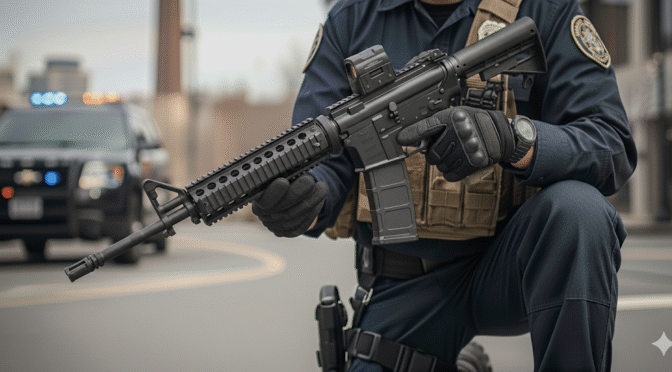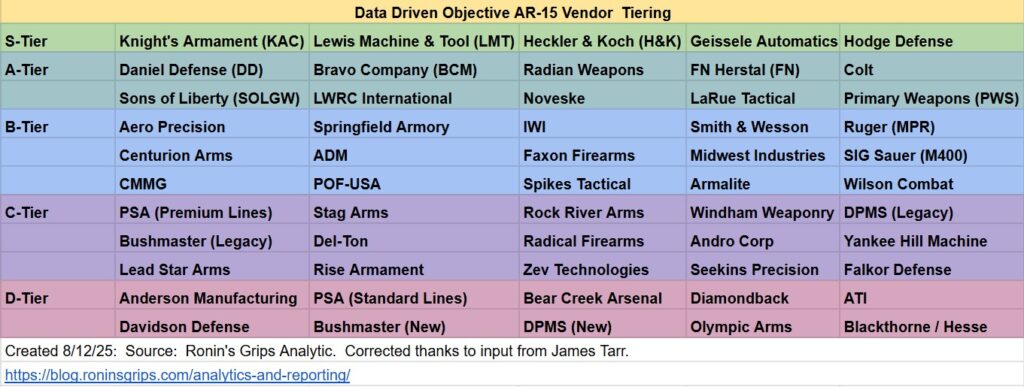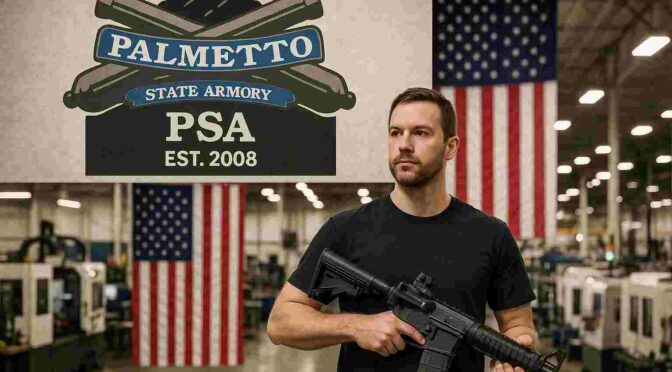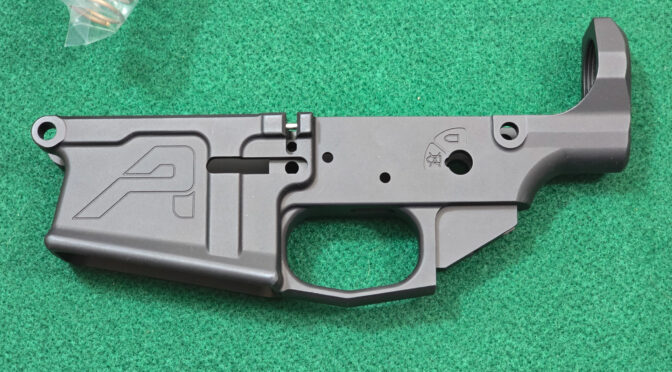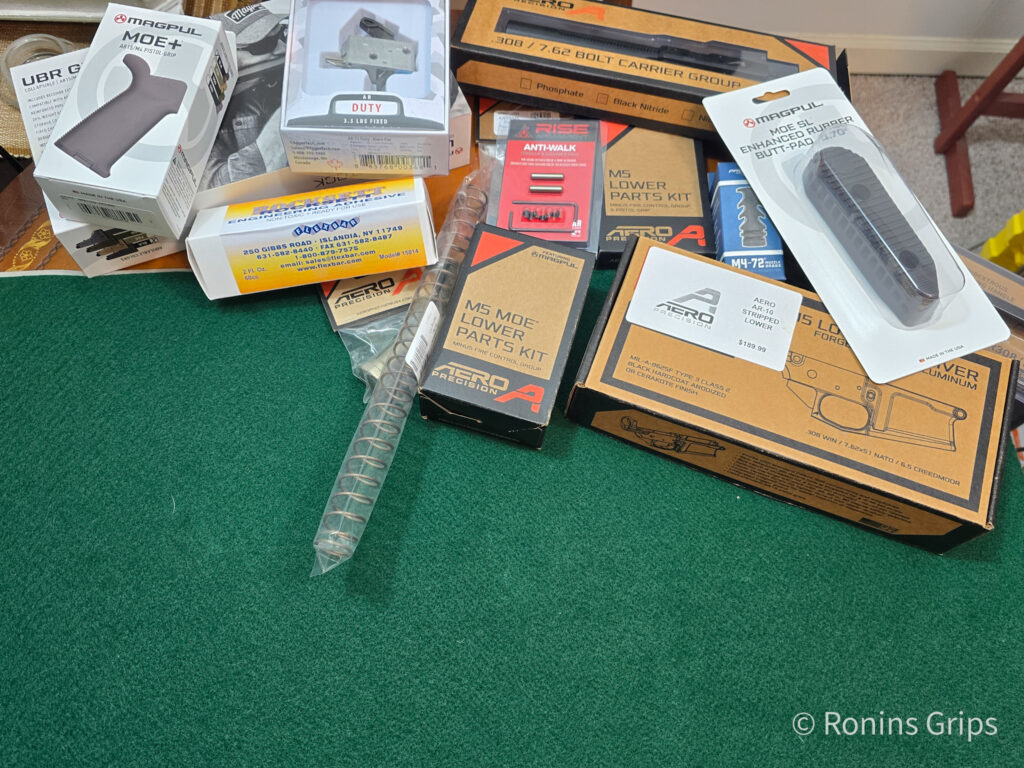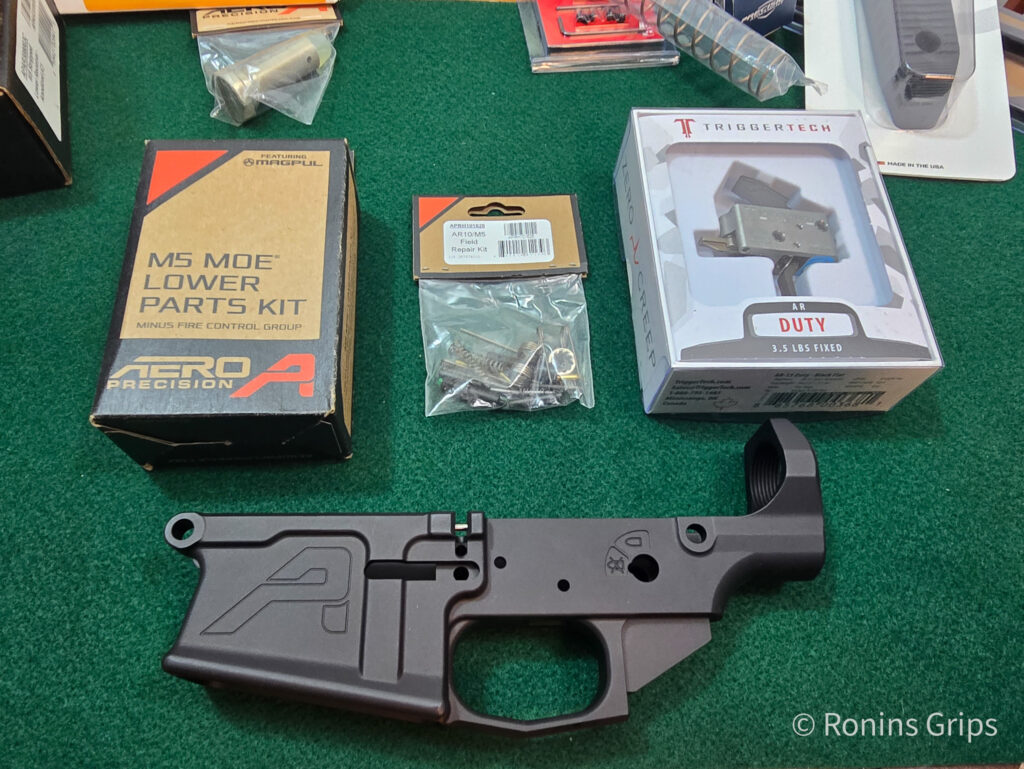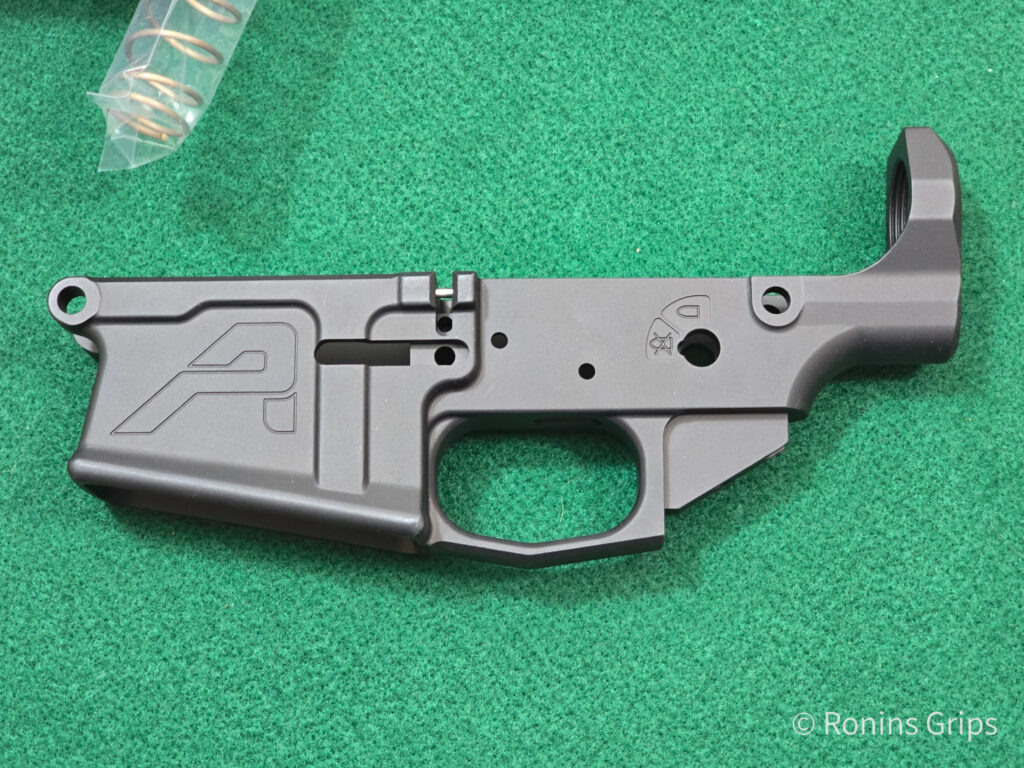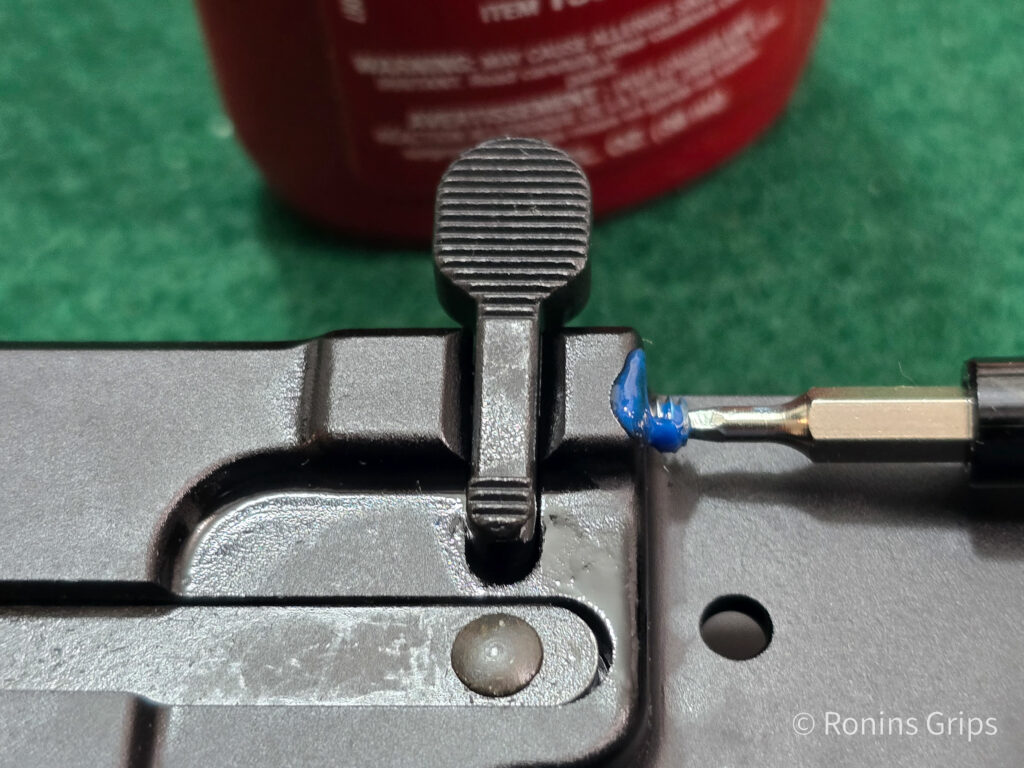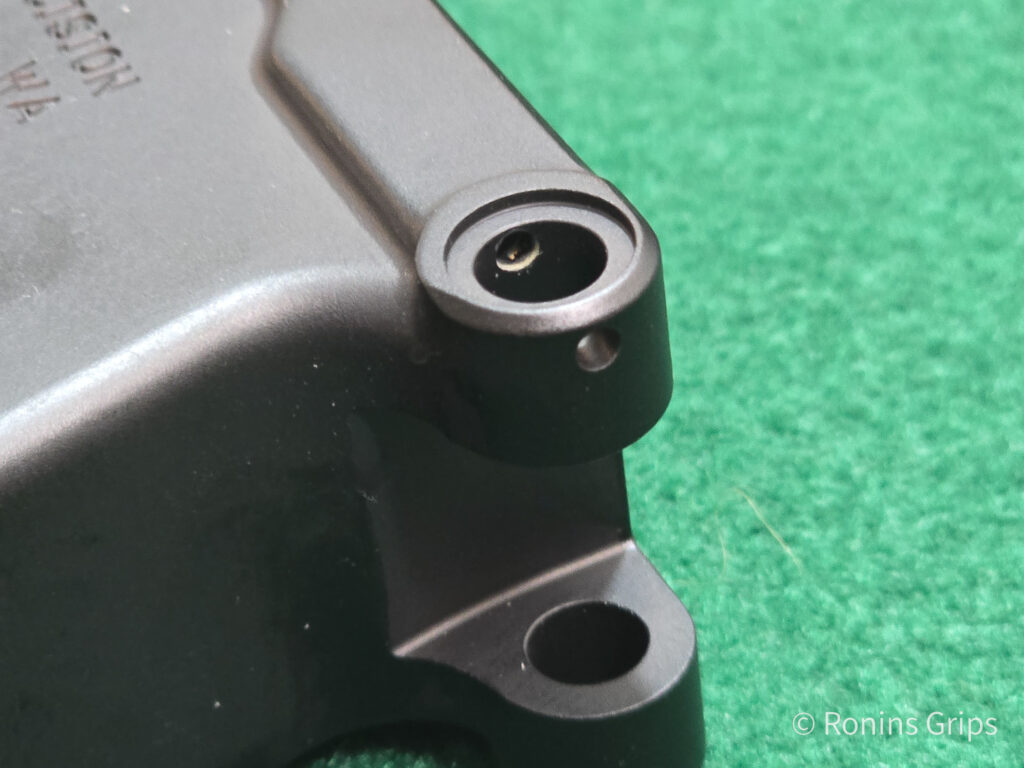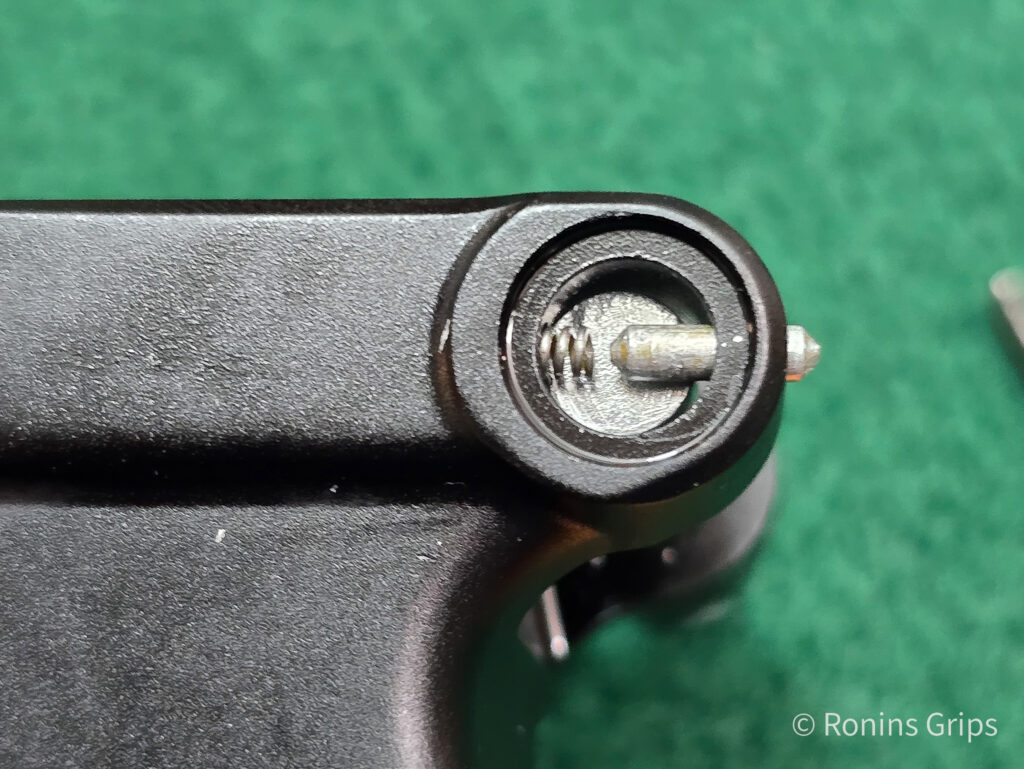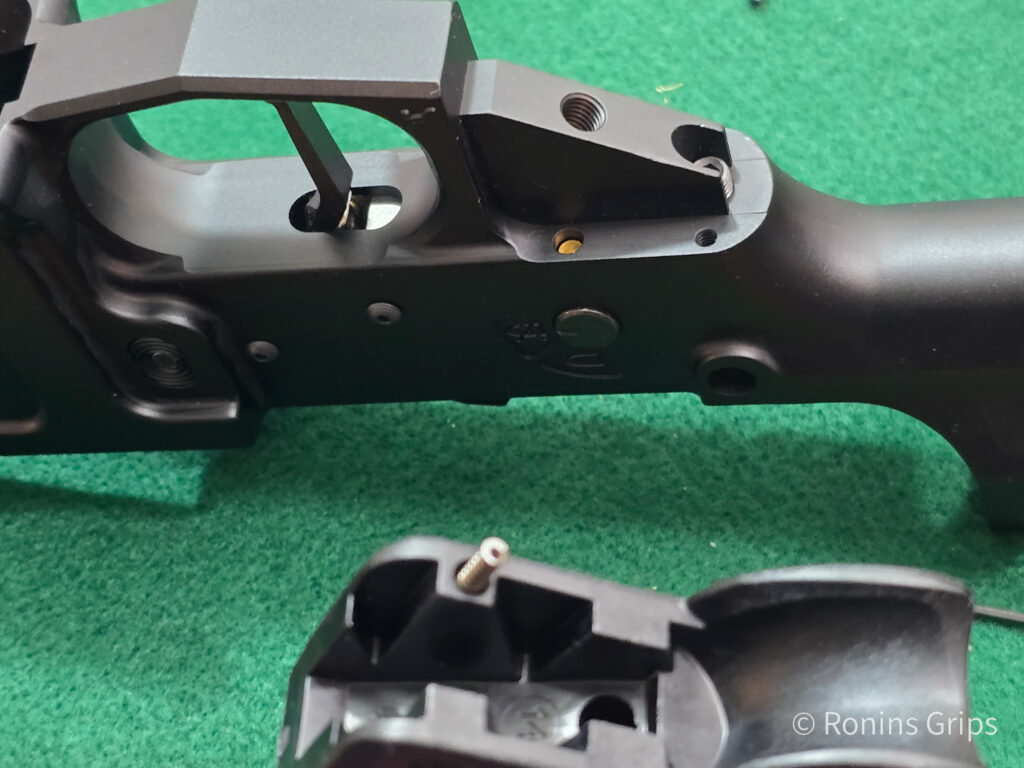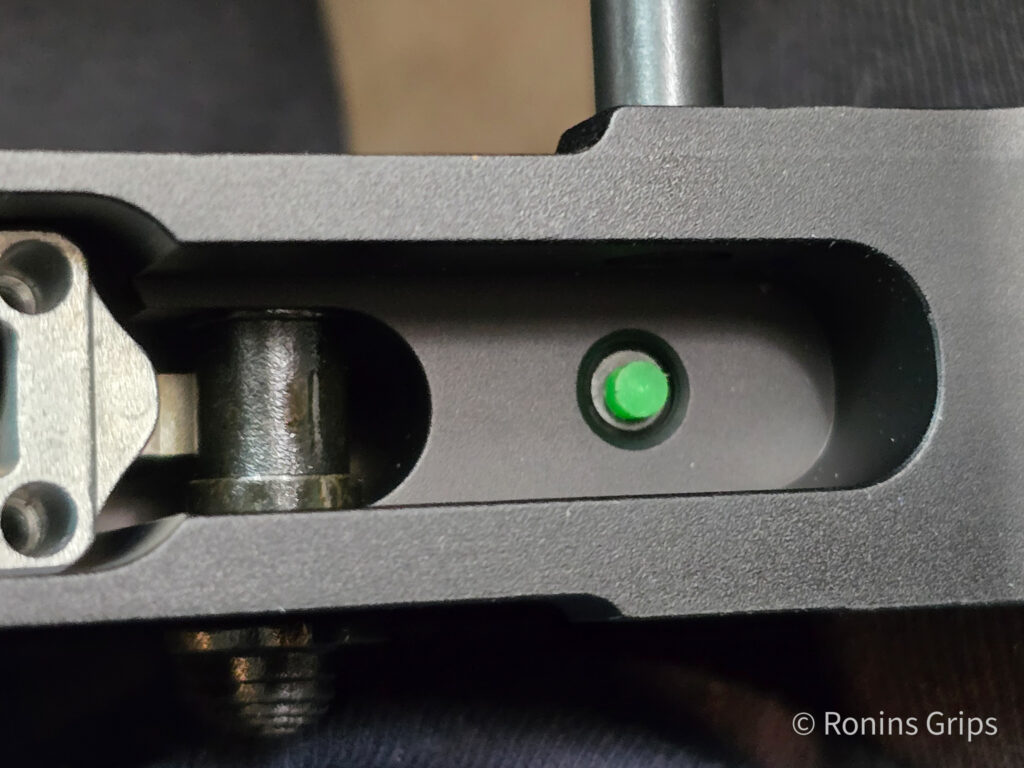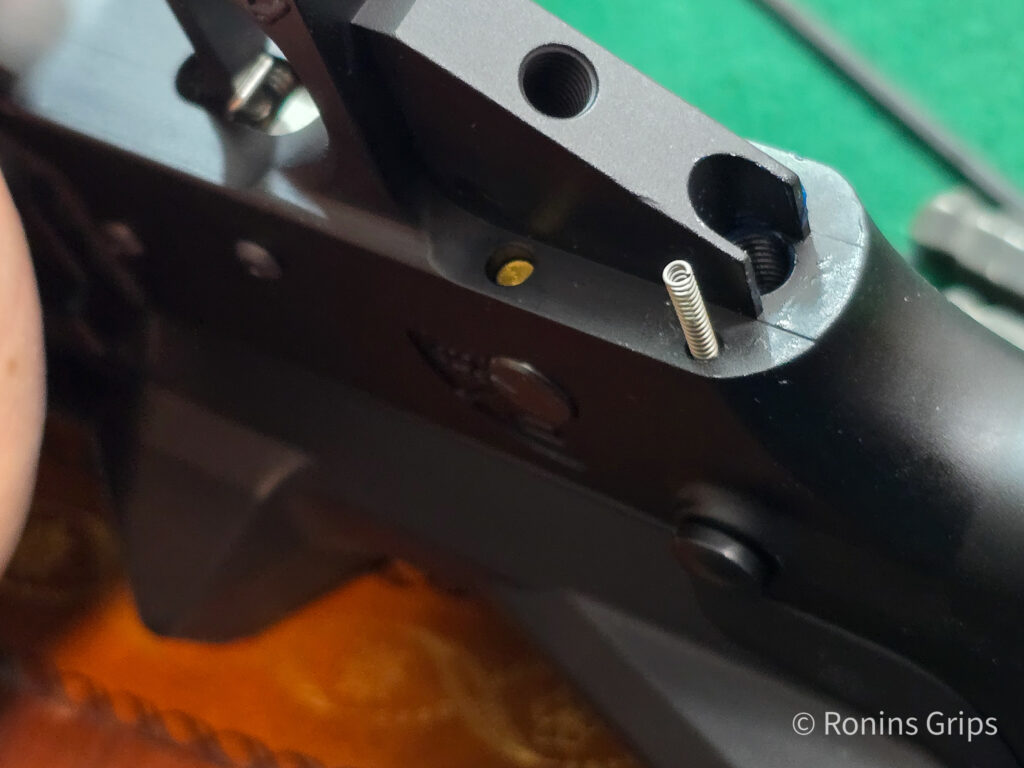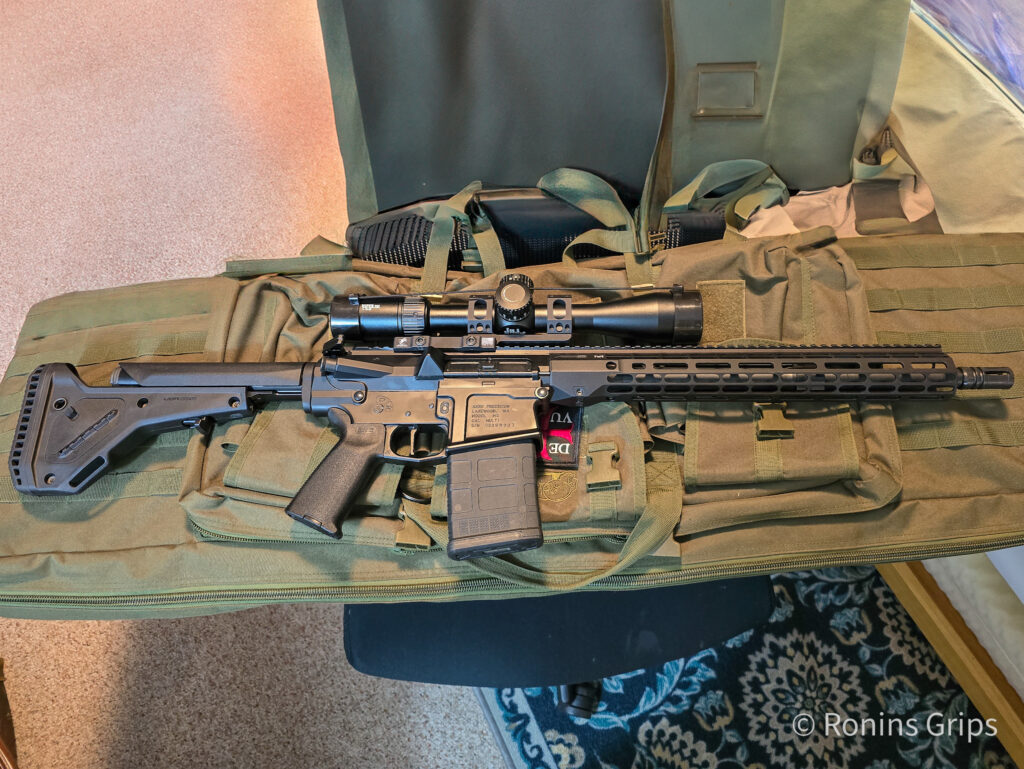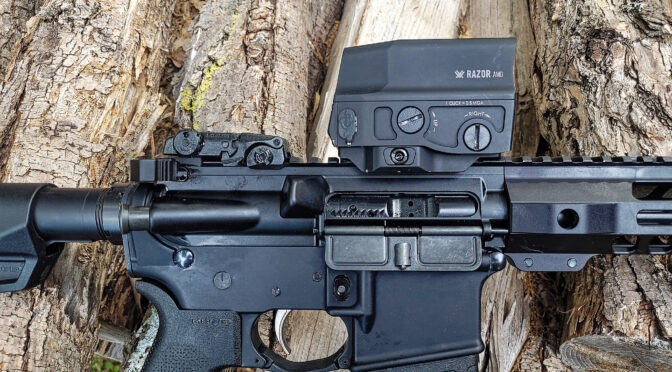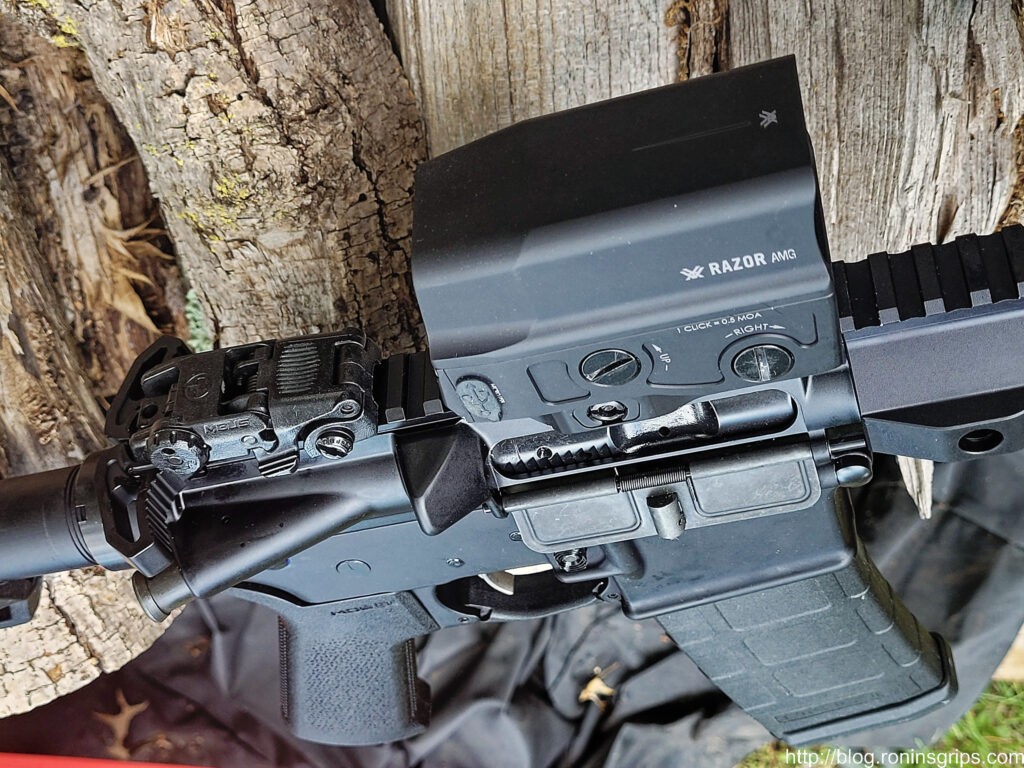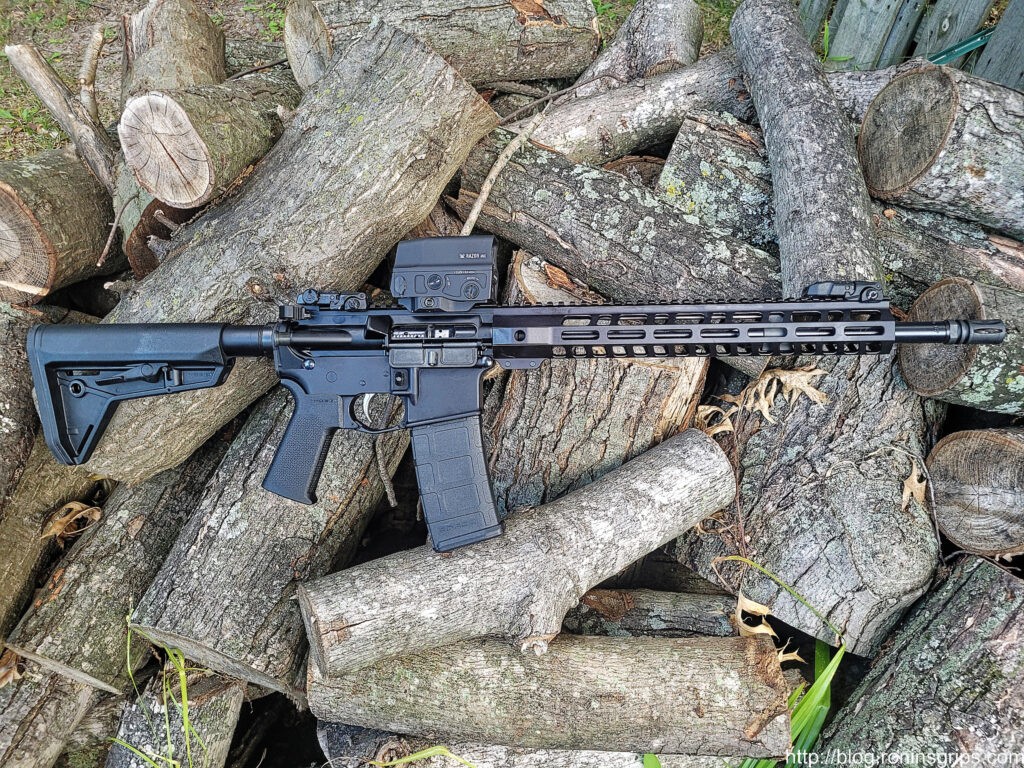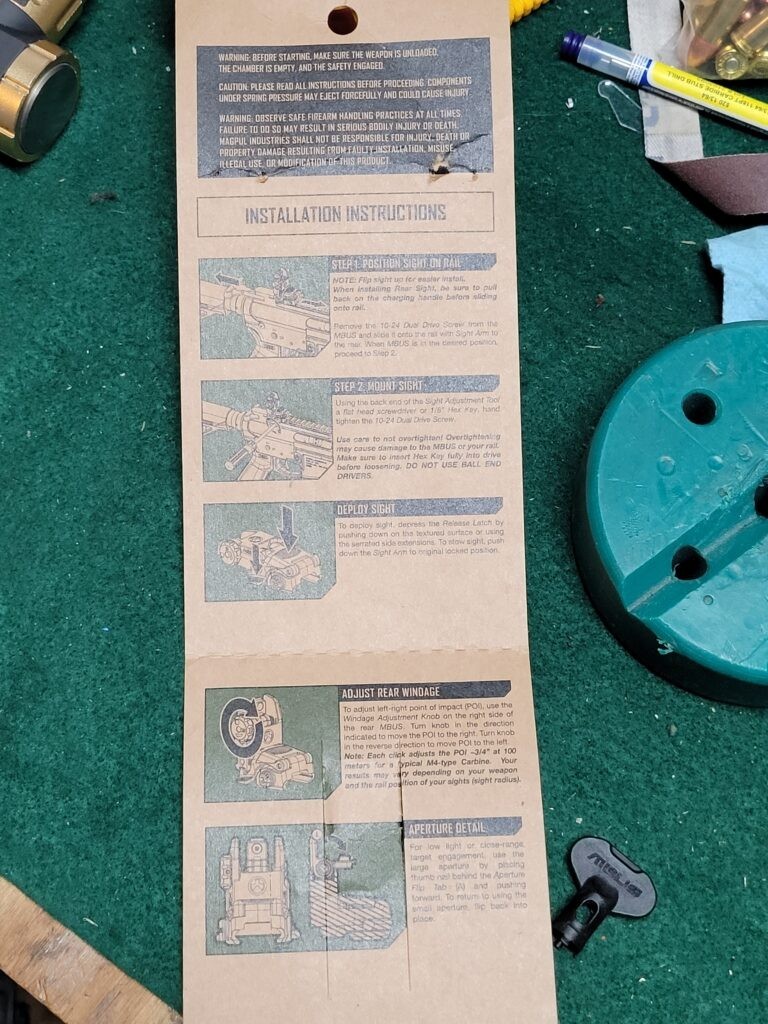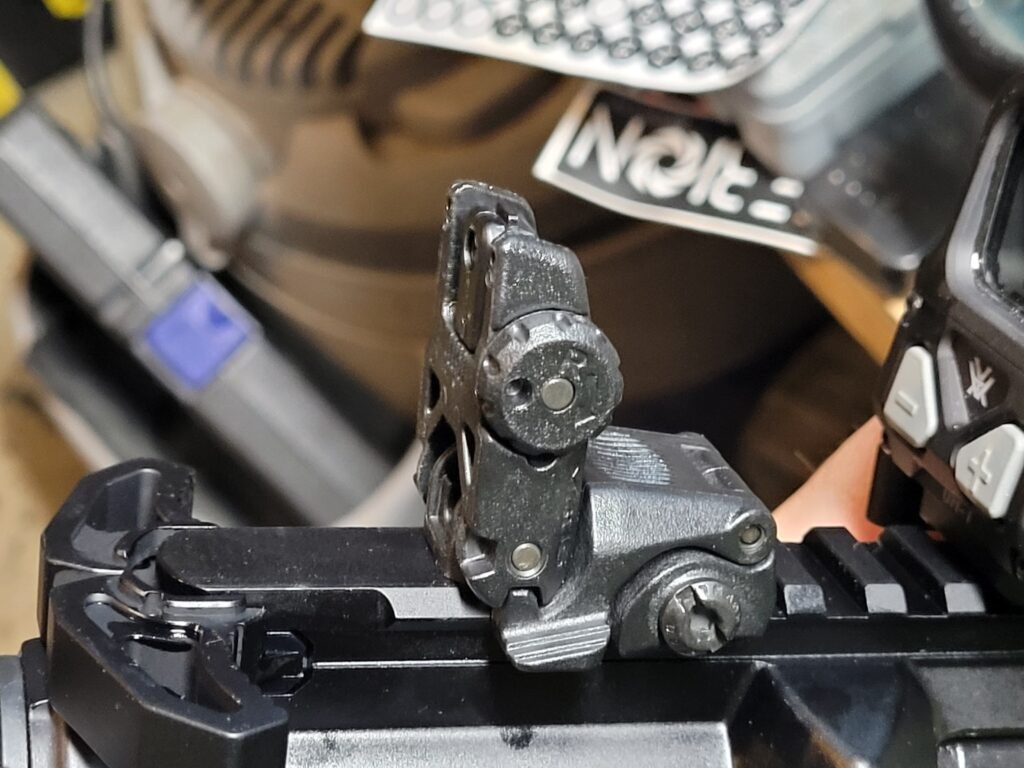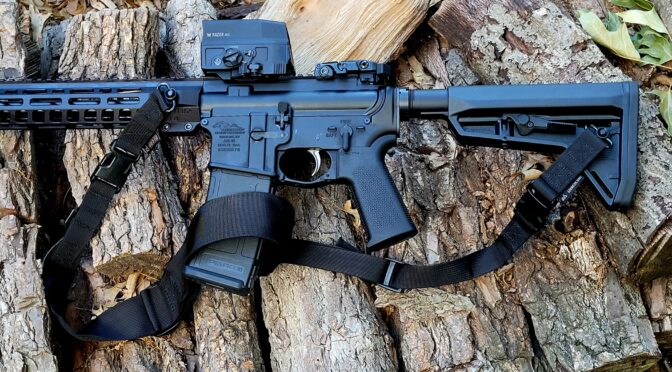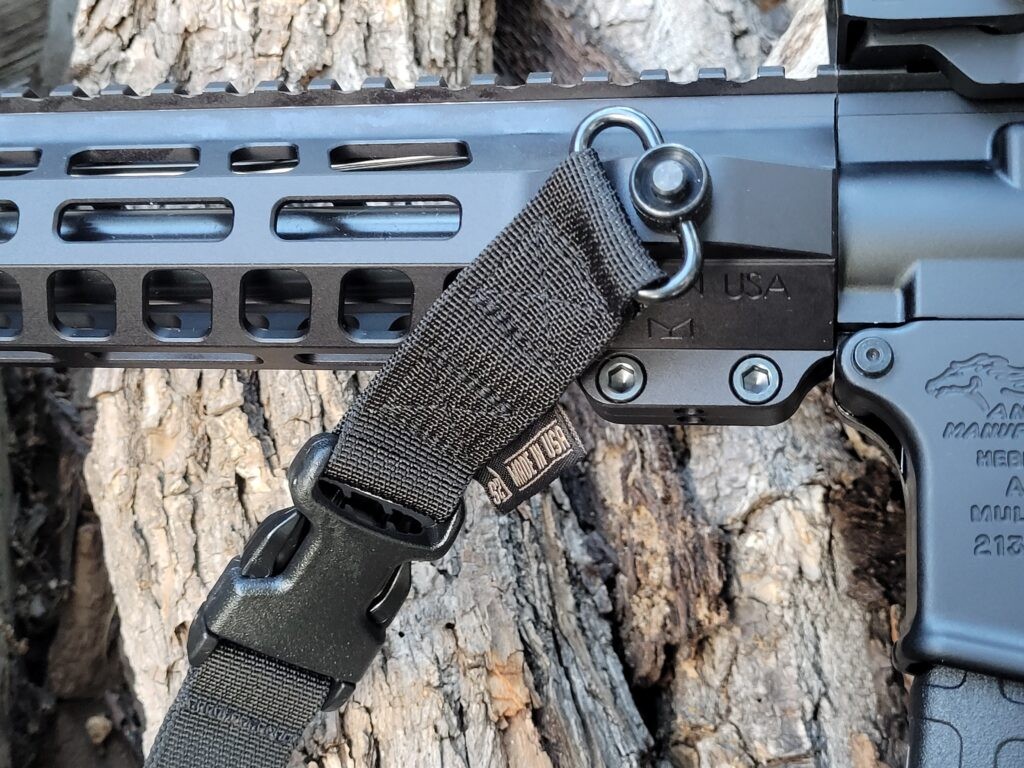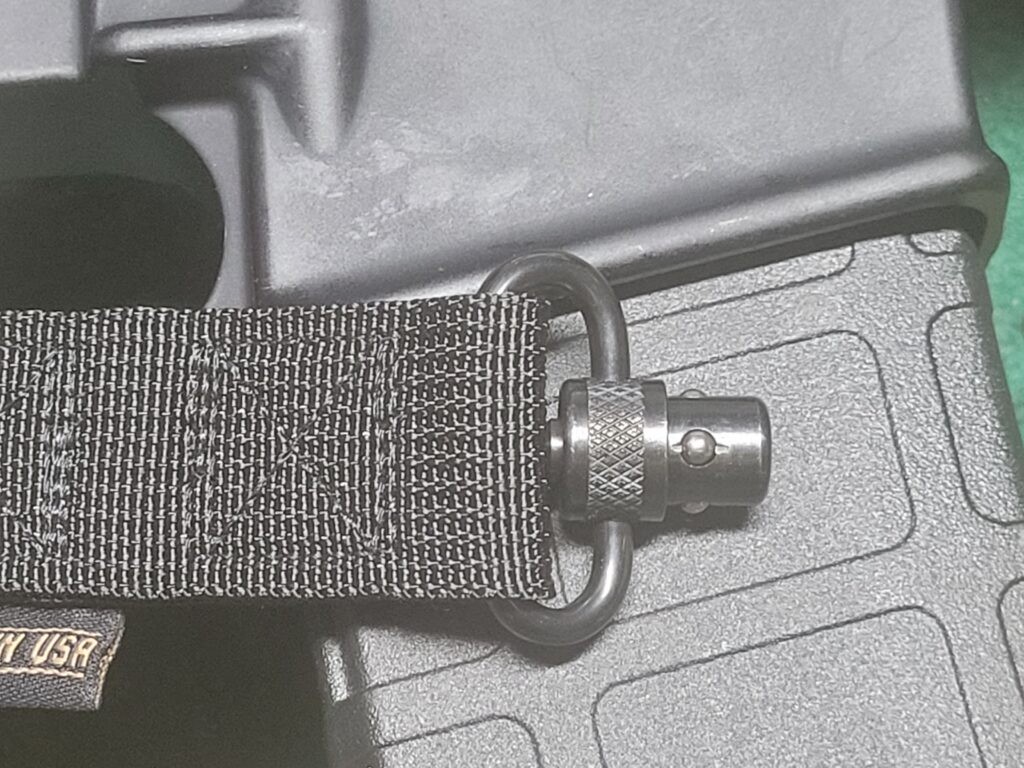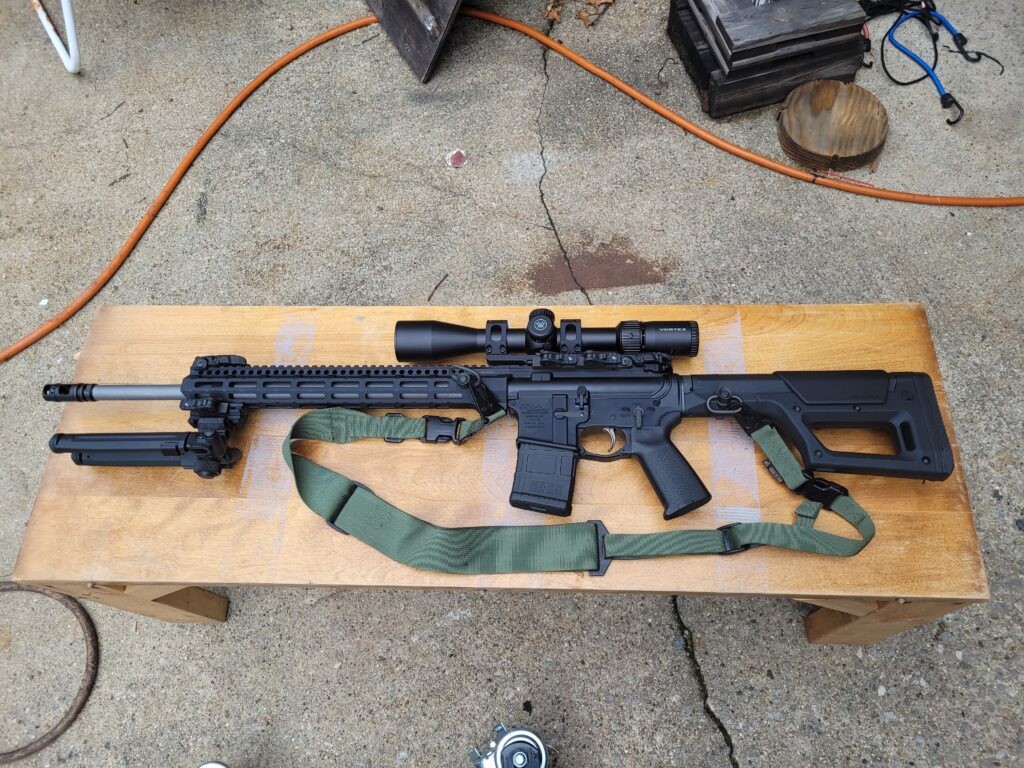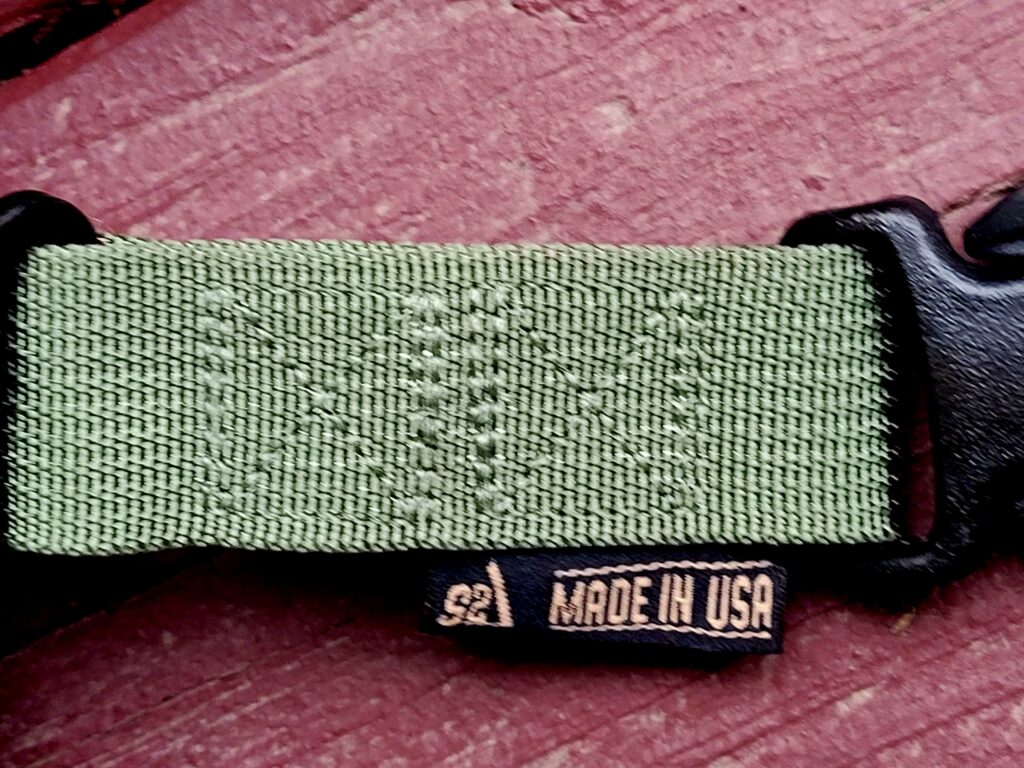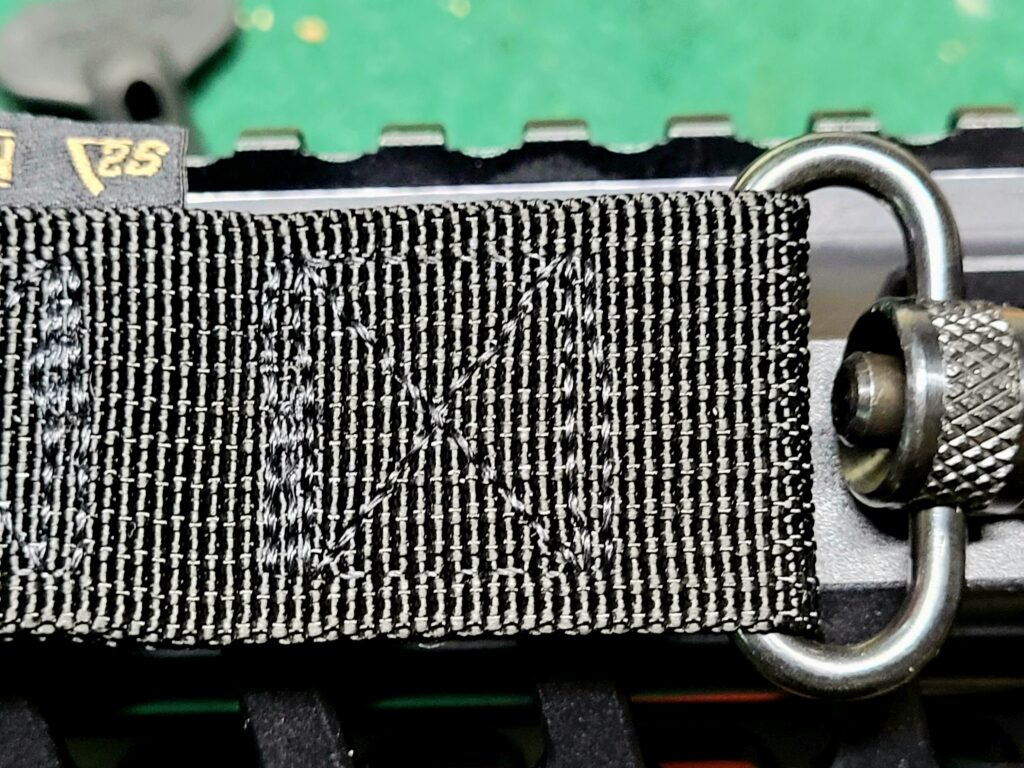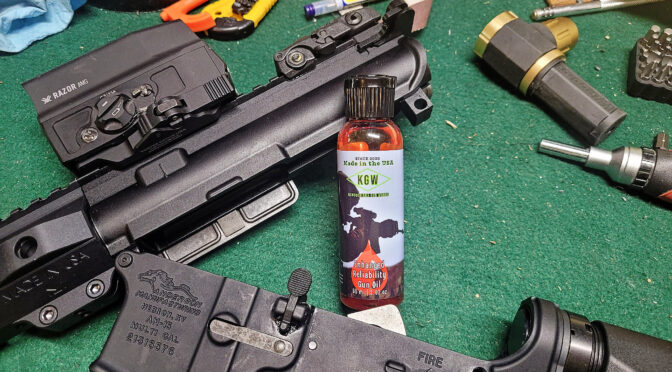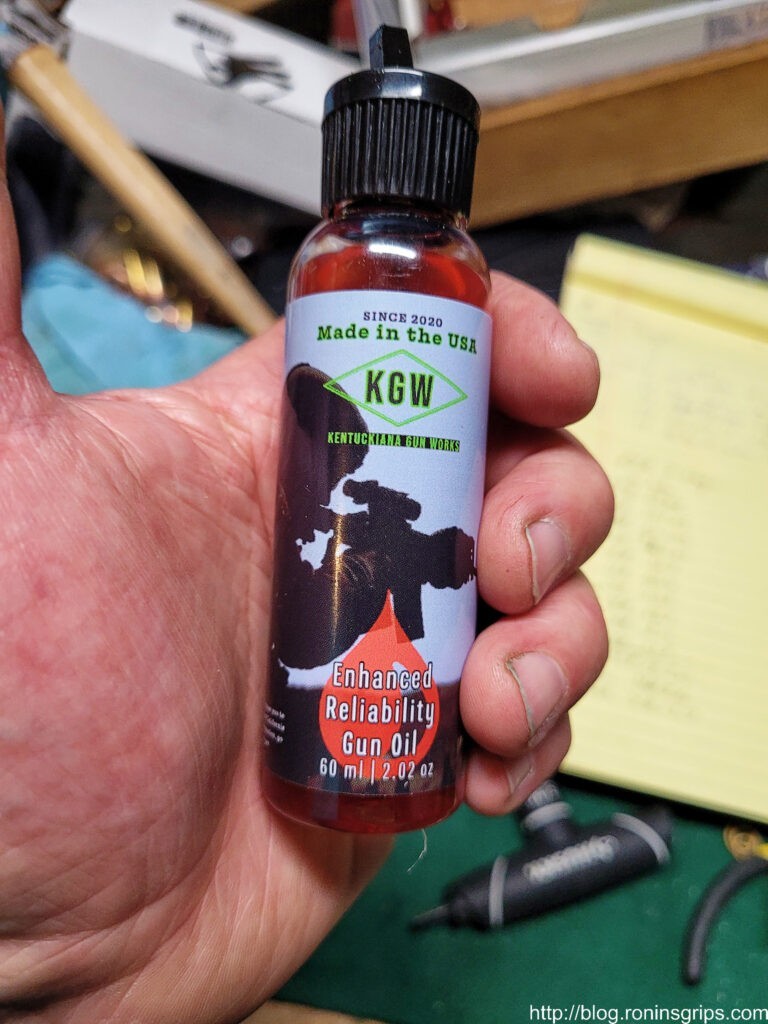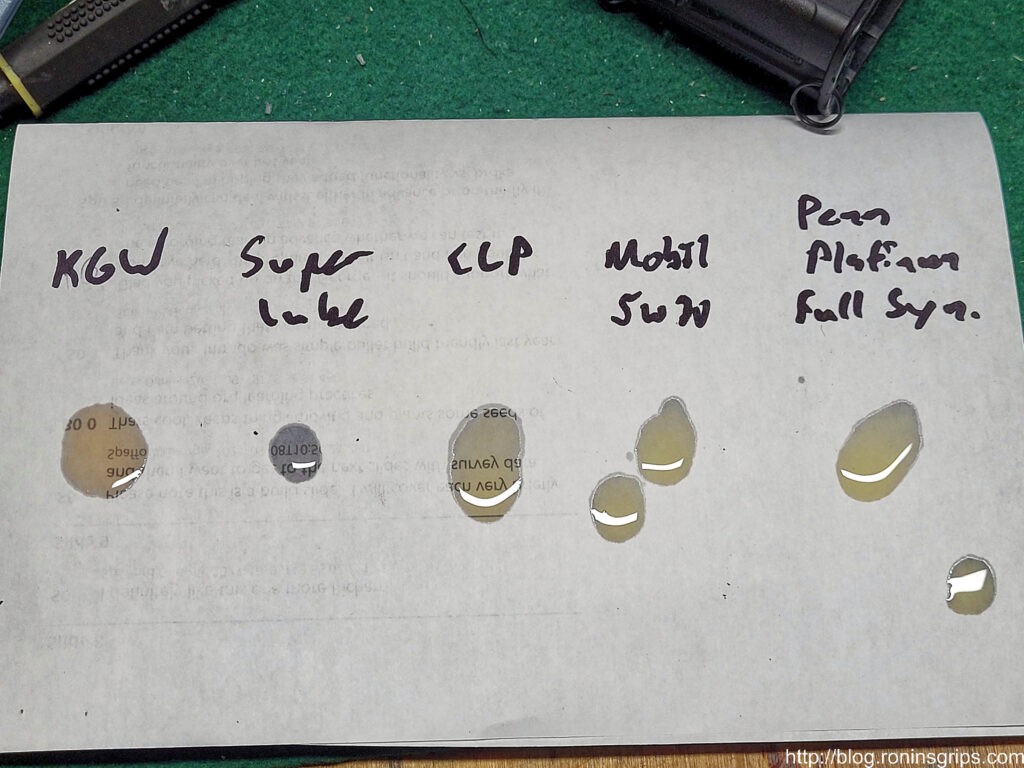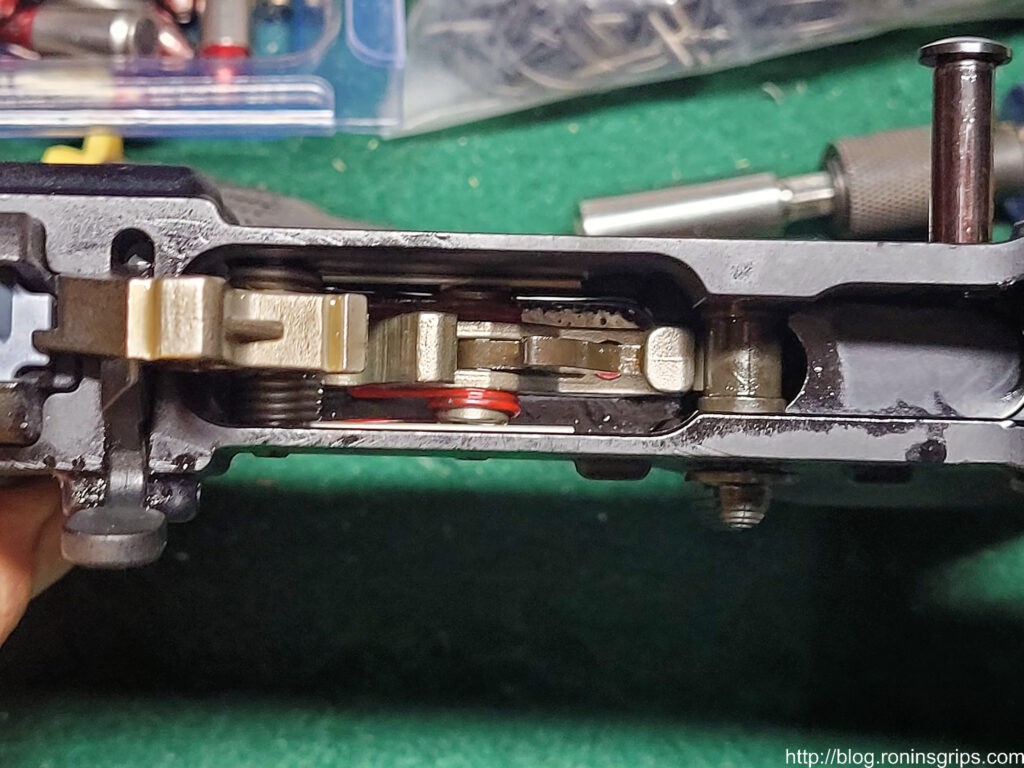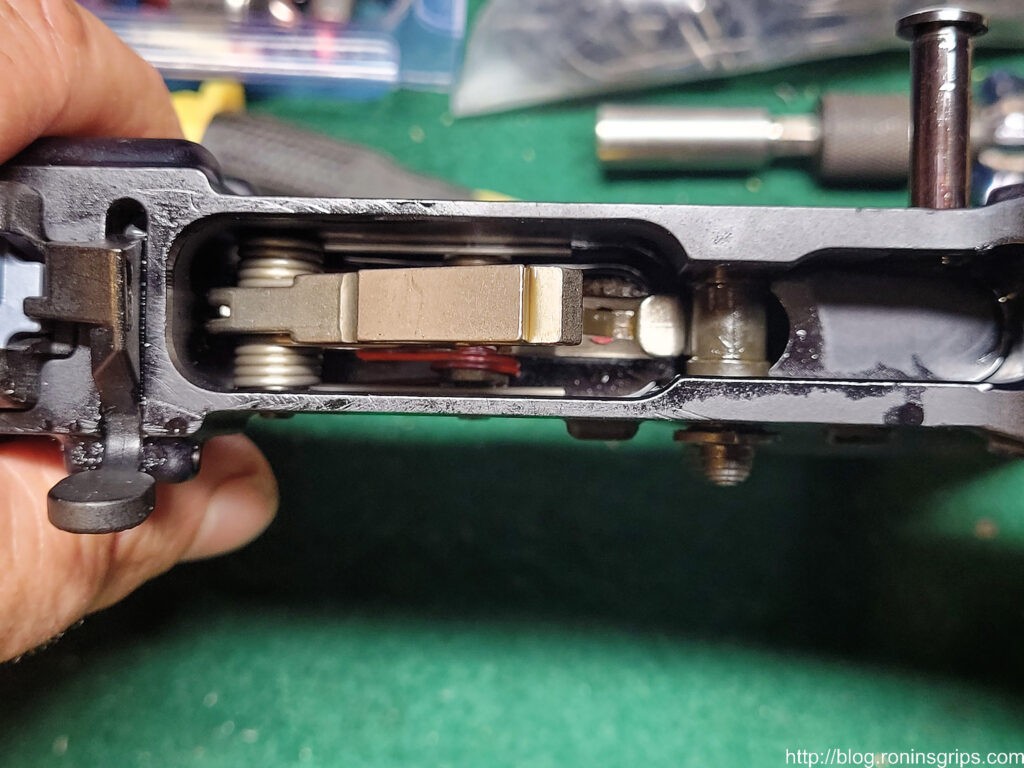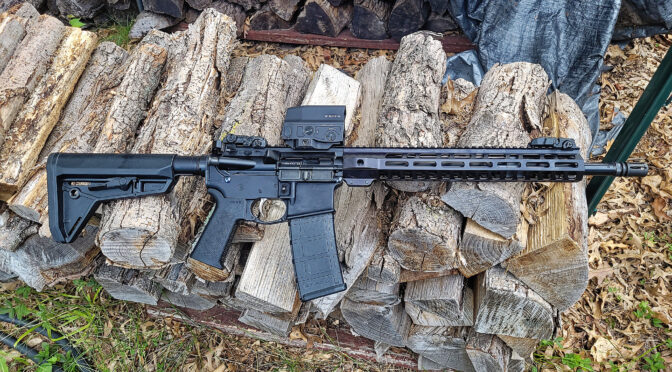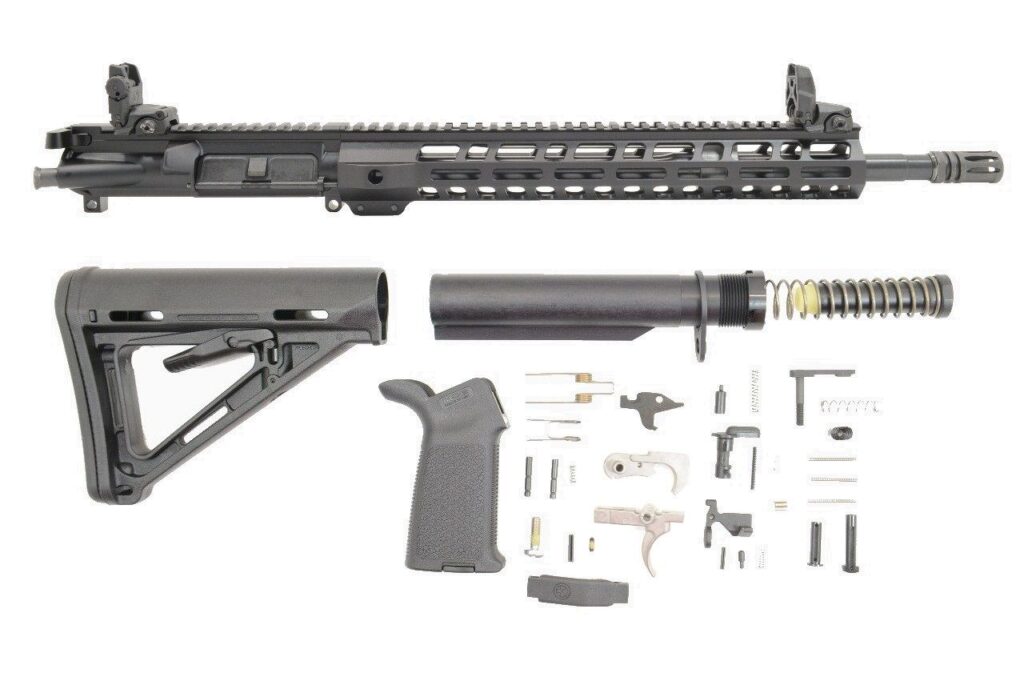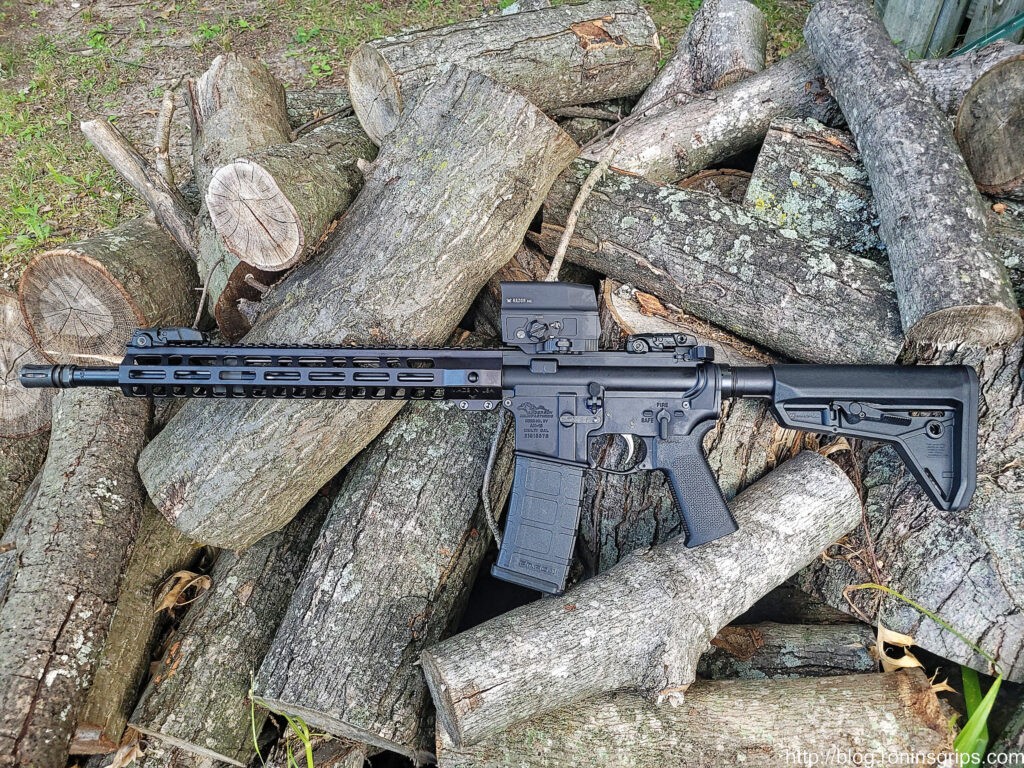The landscape of American law enforcement patrol armament underwent a seismic shift in the late 20th century, driven by tactical realities that exposed the limitations of traditional sidearms and shotguns. The watershed moment, indelibly marked in law enforcement history, was the 1997 North Hollywood shootout. During this incident, two heavily armed and armored bank robbers engaged officers with superior firepower, rendering police pistols and shotguns largely ineffective.1 This event, among others, served as a powerful catalyst, accelerating the transition toward the widespread adoption of semi-automatic, magazine-fed patrol rifles as standard-issue equipment for front-line officers.
In the decades since, the AR-15 platform has emerged as the undisputed standard for law enforcement agencies at the federal, state, and local levels. Its dominance is not incidental but is rooted in a combination of superior ergonomics, inherent modularity, and proven reliability.2 The platform’s design allows for easy customization with mission-critical accessories such as optical sights, weapon lights, and laser aiming modules, enabling a single weapon system to be adapted for diverse operational environments. Furthermore, its ubiquity has created a vast and robust ecosystem of parts, training programs, and armorer support, making it a logistically sound and cost-effective choice for long-term institutional use.
This report provides a definitive, data-driven analysis of the top 10 rifles currently in service with U.S. law enforcement agencies. The rankings are based on a comprehensive evaluation of market penetration, procurement data, and frequency of use by officers and agencies. The analysis will delve into the key market dynamics driving procurement, followed by a detailed technical and operational examination of each rifle. Finally, the report will address the critical pairing of these weapon systems with appropriate duty and precision ammunition, concluding with a comparative summary and an outlook on future trends.
Section 1: Market Dynamics and Key Procurement Drivers
The law enforcement rifle market is a complex and highly competitive space, governed by a unique set of procurement drivers that extend beyond simple performance metrics. Agency decisions are influenced by budget constraints, logistical considerations, legacy systems, and the specific operational needs of their jurisdictions. This has resulted in a clearly tiered market structure.
The Tiered Market Structure
Analysis of agency adoptions reveals three primary tiers of rifle procurement:
- Legacy/Mil-Spec Standard: This tier is dominated by manufacturers with long-standing military contracts and a deeply entrenched reputation for meeting rigorous government standards. These rifles are often considered the benchmark for reliability and serve as a safe, proven choice for agencies. Their primary adoption driver is institutional trust built over decades of military and federal service.
- High-Volume/Value-Driven: This segment is characterized by rifles that offer a strong balance of proven reliability and cost-effectiveness. Manufacturers in this tier have successfully enabled the large-scale, department-wide issuance of patrol rifles to agencies with significant budget constraints. Their success is predicated on delivering a dependable, duty-capable rifle at a price point that facilitates mass procurement.
- Premium/Duty-Grade: This tier consists of high-performance rifles featuring superior materials, advanced manufacturing processes, and enhanced quality control. These platforms are often selected by specialized units such as SWAT, well-funded departments, and federal tactical teams that prioritize absolute performance and durability over cost. These rifles typically incorporate modern design features like free-floating handguards, upgraded triggers, and superior components as standard.
Procurement Process and Criteria
The selection process for a duty rifle is a methodical and demanding undertaking. Procurement documents and contract awards reveal a consistent set of evaluation criteria. Reliability under adverse conditions is paramount. A prime example is the exhaustive trials process conducted by the Drug Enforcement Administration (DEA) and Federal Bureau of Investigation (FBI), which included extreme temperature tests, drop tests, corrosion tests, and a 5,000-round endurance test.4 Only rifles that could pass this brutal gauntlet were considered for the contract, which was ultimately awarded to Rock River Arms, cementing its reputation for durability.5
Beyond sheer reliability, agencies evaluate accuracy, long-term durability, manufacturer support, and the total cost of ownership. This latter point is critical; the initial purchase price is only one component of a weapon system’s lifecycle cost. The availability and cost of replacement parts, the need for specialized tools or training, and the ease of maintenance by department armorers are all significant factors. Recent procurement trends show a move toward shorter contract durations, allowing agencies greater flexibility, and a significant increase in spending on parts and system upgrades, indicating a focus on maintaining and modernizing existing rifle inventories rather than wholesale replacement.7
A crucial, though often overlooked, factor in an agency’s procurement decision is the strength of the manufacturer’s support ecosystem. The marginal performance difference between two high-quality rifles can be less decisive than the logistical and training infrastructure a manufacturer provides. Major manufacturers like Colt and Ruger offer dedicated, multi-day armorer’s courses, enabling agencies to become self-sufficient in maintaining their firearms fleet.9 This in-house capability reduces long-term costs and minimizes weapon downtime. Similarly, the long-term availability of authentic replacement parts is a critical logistical concern. Federal contracts, such as the FBI’s $9 million Indefinite Delivery/Indefinite Quantity (IDIQ) contract for Colt carbine parts, underscore the importance of a stable and guaranteed supply chain for the service life of a rifle.8 A manufacturer that provides robust training programs, guarantees parts availability for years to come, and adheres to the common AR-15 platform—ensuring interoperability and minimizing retraining needs—presents a lower long-term risk and a more attractive overall value proposition. This comprehensive ecosystem is a powerful and often decisive procurement driver.
Section 2: Ranked Analysis of Top 10 Law Enforcement Rifles
The following analysis details the top 10 rifles in U.S. law enforcement service, ranked in descending order of prevalence and market penetration. Each profile includes a technical breakdown, an analysis of its design philosophy, and examples of its use in the field.
2.1 Colt LE6920 / M4 Carbine (Rank #1)
Overview and Rationale: The Colt LE6920 and its M4 Carbine predecessors hold the premier position as the most prevalent and influential rifles in U.S. law enforcement. Its number one ranking is a direct result of its lineage as the civilian-legal counterpart to the U.S. military’s M4 Carbine. This decades-long military service has established an unparalleled level of trust and familiarity among law enforcement personnel, a significant portion of whom are military veterans. The term “mil-spec” is often used as a marketing buzzword, but for the Colt LE6920, it represents a tangible adherence to a proven manufacturing and quality control standard, which carries immense weight in law enforcement procurement.3 Its legacy is further cemented by its continued use and support within major federal agencies, which maintain large inventories and ongoing contracts for maintenance and parts, ensuring its status as the industry’s benchmark.8
Technical Specifications
- Caliber: 5.56x45mm NATO 12
- Operating System: Direct Impingement, Carbine-Length Gas System 13
- Barrel: 16.1-inch, Chrome-Lined, 1:7-inch Twist, M4 Profile 12
- Weight: Approximately 6.95 lbs 14
- Key Features: Forged 7075-T6 aluminum receivers, A2 front sight base with gas block, detachable carry handle with integrated rear sight, 4-position collapsible stock, double-shielded handguards. Many law enforcement trade-in models bear markings such as “RESTRICTED LAW ENFORCEMENT / GOVERNMENT USE ONLY” from the era of the 1994 Federal Assault Weapons Ban.11
Engineering and Design Analysis: The enduring value of the LE6920 lies in its strict adherence to the military’s Technical Data Package (TDP). This is not merely a set of dimensions but a comprehensive set of specifications covering materials, manufacturing processes, and quality control. Critical components, most notably the bolt and bolt carrier group, are manufactured from specified materials (Carpenter 158 steel for the bolt) and subjected to rigorous testing protocols, including High-Pressure Testing (HPT) and Magnetic Particle Inspection (MPI).11 This documented, systematic approach to quality control is the foundation of the rifle’s reputation for uncompromising reliability. While more modern designs have introduced advancements such as mid-length gas systems and free-floating handguards, the LE6920’s proven, battle-tested design remains its most compelling asset for agencies that prioritize absolute dependability over cutting-edge features.
Sample Agency Adoptions: The Colt M4/LE6920 platform is or has been in service with a vast number of U.S. agencies. Notable federal users include the U.S. Federal Bureau of Investigation (FBI), which maintains a significant inventory and logistical support contracts.8 Its widespread use at the state and local levels is evidenced by the consistent and high volume of law enforcement trade-in models that appear on the commercial market.15
Social Media/Officer Feedback: Across law enforcement forums and social media, the Colt LE6920 is consistently praised as a “workhorse” and the “gold standard”.11 Officers and armorers value its known-quantity performance and durability. Reviews of police trade-in models frequently note that despite significant external wear from years of being carried in patrol cars, the rifles remain mechanically sound and reliable, a testament to their robust build quality.16
2.2 Smith & Wesson M&P15 (Rank #2)
Overview and Rationale: The Smith & Wesson M&P15 (“Military & Police”) secures the second position by successfully capturing the high-volume, value-driven segment of the law enforcement market. Introduced in 2006, the M&P15 provided a reliable and affordable AR-15 alternative from a manufacturer with a long-standing and trusted relationship with the police community.17 This combination allowed budget-conscious departments to implement or expand their patrol rifle programs on a scale that would have been prohibitive with more expensive options. The M&P15’s market penetration is a direct result of Smith & Wesson’s strategic decision to deliver a dependable, duty-ready rifle at an exceptionally competitive price point.
Technical Specifications
- Caliber: 5.56x45mm NATO 17
- Operating System: Direct Impingement, Carbine-Length Gas System (later models, such as the M&P15 Sport III, feature a Mid-Length system) 17
- Barrel: 16-inch, 4140 Steel with Armornite or Melonite finish, 1:9-inch Twist (common on earlier/Sport models) or 1:8-inch 5R rifling 18
- Weight: Approximately 6.5 – 6.7 lbs 17
- Key Features: Early “Sport” models omitted the forward assist and dust cover to reduce costs, but these were added back on the popular M&P15 Sport II model.17 Many configurations ship from the factory with popular Magpul MOE furniture.21
Engineering and Design Analysis: The M&P15 platform achieves its attractive price point through intelligent design choices and high-volume, efficient manufacturing. The use of 4140 steel barrels with a durable Armornite (ferritic nitrocarburizing) finish, for example, provides excellent corrosion resistance and service life at a lower cost than traditional chrome lining.20 While not built to the same strict military TDP as a Colt, Smith & Wesson’s manufacturing and quality control are highly respected in the industry, producing a rifle that is more than capable of meeting the demands of the vast majority of law enforcement patrol duties. The platform’s credibility was significantly bolstered by its adoption by major metropolitan agencies, which validated its performance and reliability for serious duty use.18
Sample Agency Adoptions: Las Vegas Metropolitan Police Department (LVMPD) 17, Maricopa County Sheriff’s Office, West Virginia State Police, and the U.S. Internal Revenue Service, Criminal Investigative Division.17
Social Media/Officer Feedback: The M&P15 Sport II is widely recommended online as one of the best “entry-level” AR-15s, offering exceptional value for both civilians and officers purchasing their own rifles.22 Police trade-in models are a popular item on the surplus market, viewed by knowledgeable buyers as a proven, reliable duty rifle at a very low cost. Forum discussions often highlight that while they may have cosmetic wear, they are mechanically sound and have significant service life remaining.23
2.3 Daniel Defense DDM4 V7 (Rank #3)
Overview and Rationale: Daniel Defense occupies the premium tier of the law enforcement market, and the DDM4 V7 is its flagship model. The rifle’s high ranking is attributable to its sterling reputation for superior build quality, precision accuracy, and uncompromising durability. It is a top choice for well-funded agencies and specialized units like SWAT that prioritize outright performance and reliability over budget considerations. The company’s commitment to in-house manufacturing of critical components, most notably its renowned cold hammer-forged (CHF) barrels, and its use of proprietary, high-quality furniture and rail systems justify its premium price point.3
Technical Specifications
- Caliber: 5.56x45mm NATO 25
- Operating System: Direct Impingement, Mid-Length Gas System 26
- Barrel: 16-inch Cold Hammer-Forged, Chrome-Moly Vanadium Steel, Chrome-Lined, 1:7-inch Twist, Government Profile 25
- Weight: Approximately 6.2 lbs 3
- Key Features: Free-floating MFR (M-LOK Rail) handguard with a robust 6-bolt lockup system, proprietary buttstock and pistol grip with soft-touch overmolding, enhanced flared magazine well, ambidextrous GRIP-N-RIP charging handle.25
Engineering and Design Analysis: The DDM4 V7 is engineered from the ground up for enhanced performance. The mid-length gas system, compared to a traditional carbine-length system, results in a softer recoil impulse and reduced wear on internal components, increasing the weapon’s service life and reliability. The cold hammer-forging process creates an exceptionally dense and durable barrel, prized for its long-term accuracy and longevity under high round counts.24 The proprietary rail system’s attachment to the upper receiver is designed to be extremely rigid, preventing any shift in zero for mounted lasers or other aiming devices. These features are not superficial; they are tangible engineering decisions that directly address the needs of professional end-users and contribute to the rifle’s elite status.28
Sample Agency Adoptions: While Daniel Defense does not publicize all of its agency contracts, its rifles are known to be in service with a multitude of state and local SWAT teams and specialized federal units across the United States. Documented users include the Missouri State Police and the North Dakota Highway Patrol.29 The company also actively supports the professional community through its Military/Law Enforcement (MILE) discount program.30
Social Media/Officer Feedback: User reviews for the DDM4 V7 are almost universally positive, with owners consistently praising its “superior craftsmanship,” light weight, and exceptional out-of-the-box accuracy.31 It is frequently cited as being “worth the price” and is a perennial top pick in expert and user-driven “best AR-15” comparisons.3 The consensus is that it represents a complete, high-performance package that requires no immediate upgrades.
2.4 Bravo Company Manufacturing (BCM) RECCE-16 (Rank #4)
Overview and Rationale: Bravo Company Manufacturing (BCM) has established a formidable presence in the law enforcement market by adhering to a philosophy of building “professional grade weaponry” without compromise. The RECCE-16 is a cornerstone of its lineup and is highly ranked due to its adoption by agencies that demand mil-spec-or-better quality combined with modern features. BCM is often regarded as offering one of the best performance-to-price ratios within the premium rifle tier.26 Its popularity stems from a strict adherence to mil-spec standards for critical components, like the bolt carrier group, while integrating modern, lightweight features like the MCMR (M-LOK Compatible Modular Rail) handguard.
Technical Specifications
- Caliber: 5.56x45mm NATO 32
- Operating System: Direct Impingement, Mid-Length Gas System 33
- Barrel: 16-inch, Certified MIL-SPEC 11595E Steel, Chrome-Lined, 1:7-inch Twist, USGI Government Profile 33
- Weight: Approximately 6.1 lbs 32
- Key Features: BCM MCMR free-float M-LOK handguard, BCM Mod 0 Compensator, BCMGUNFIGHTER furniture (grip, stock, charging handle), BCM PNT (Polished Nickel Teflon) Trigger.34
Engineering and Design Analysis: BCM’s corporate mission is to build “life saving tools,” a principle that dictates its manufacturing and quality control processes.35 This is most evident in their fanatical attention to detail on components that directly impact reliability. Every BCM bolt is machined from mil-spec Carpenter No. 158 steel and is individually High-Pressure Tested and Magnetic Particle Inspected (HPT/MPI).33 Gas port dimensions are carefully calibrated to ensure reliable function across a wide range of ammunition and conditions, both suppressed and unsuppressed. This focus on “hard use” engineering has cultivated a fiercely loyal following among professionals who demand absolute, unfailing performance from their equipment.36
Sample Agency Adoptions: BCM rifles are used by a variety of agencies, from local police departments to federal units. A notable example is the Ennis Police Department in Texas, which issued a bid specifically for the BCM RECCE-14 model for its patrol officers.38 The company also states that its products serve US Military Special Operations Units and the Department of Homeland Security.35
Social Media/Officer Feedback: The brand is frequently recommended by active law enforcement and military personnel in online discussions as a top-tier duty rifle that offers exceptional reliability for its price.36 In a review for
Police Magazine, an officer evaluating a BCM MK12 rifle was so impressed with its quality and performance that he subsequently procured 15 BCM short-barreled rifles to equip his agency’s entire SWAT team, a powerful real-world endorsement.37
2.5 Rock River Arms LAR-15 (Rank #5)
Overview and Rationale: Rock River Arms (RRA) earned its prominent place in the law enforcement market primarily through a landmark contract win with the U.S. Drug Enforcement Administration. The DEA’s search for a new 5.56mm carbine in the early 2000s culminated in one of the most rigorous testing protocols ever devised for a law enforcement rifle. The RRA LAR-15 was one of the few platforms to survive the brutal abuse, endurance, and reliability tests, leading to a five-year contract to supply the agency.4 This victory served as a massive, independent validation of the rifle’s quality, leading to subsequent adoptions by the FBI and U.S. Marshals Service and making it a trusted and proven choice for numerous other agencies.6
Technical Specifications
- Caliber: 5.56x45mm NATO 39
- Operating System: Direct Impingement, Carbine or Mid-Length Gas System 40
- Barrel: 16-inch, Chrome-Lined, 1:9-inch or 1:7-inch Twist 39
- Weight: Approximately 7.5 lbs 39
- Key Features: Forged A4 upper receiver, RRA two-stage trigger, RRA overmolded A2 pistol grip, 6-position tactical stock. Available in various configurations, including different handguards (CAR, M-LOK) and barrel lengths.39 The specific DEA contract rifle was outfitted with an EOTech holographic sight and a SureFire weapon light.4
Engineering and Design Analysis: While sometimes perceived as a “mid-tier” manufacturer that assembles parts, the DEA trials unequivocally demonstrated that RRA’s build quality and component selection are robust enough for elite federal law enforcement service. The company’s use of high-quality barrels from suppliers like Wilson Arms is known to contribute to the platform’s excellent accuracy.42 A standout feature of many RRA rifles is their proprietary two-stage trigger, which is widely regarded as a significant improvement over a standard mil-spec trigger, providing a cleaner break and enhancing the shooter’s ability to place accurate shots.42
Sample Agency Adoptions: U.S. Drug Enforcement Administration (DEA), Federal Bureau of Investigation (FBI), and U.S. Marshals Service.5 The success of these federal contracts led to widespread adoption by numerous state and local agencies.
Social Media/Officer Feedback: In online forums frequented by law enforcement and firearms enthusiasts, the DEA/FBI contracts are consistently cited as the ultimate proof of Rock River Arms’ quality and durability. Many users place RRA on par with Colt for reliability, viewing them as solid, dependable “workhorse” rifles that offer excellent performance, particularly given their competitive pricing.42
2.6 SIG Sauer M400 Series (Tread / Pro) (Rank #6)
Overview and Rationale: SIG Sauer, a dominant force in the law enforcement handgun market, has successfully leveraged its brand strength to make significant inroads into the patrol rifle space with its M400 series. The M400’s ranking is driven by its growing adoption across a diverse range of state and local agencies. Its popularity is fueled by a combination of modern, desirable features offered as standard—such as ambidextrous controls and free-float handguards—at a highly competitive price. The M400 TREAD model, in particular, was a market disruptor, bringing a feature-rich, optics-ready rifle to the sub-$1,000 price point, making it an extremely attractive option for both agency procurement and Individual Officer Purchase (IOP) programs.44
Technical Specifications
- Caliber: 5.56x45mm NATO 46
- Operating System: Direct Impingement, Mid-Length Gas System 47
- Barrel: 16-inch Stainless Steel (Tread model) or Nitride-finished Carbon Steel (Pro model), 1:8-inch or 1:7-inch Twist 46
- Weight: Approximately 6.5 – 7.0 lbs 46
- Key Features: Fully ambidextrous controls (safety selector, magazine release), free-floating M-LOK handguard, single-stage polished/hard-coat trigger (Tread), Magpul SL-K stock.46
Engineering and Design Analysis: The M400 series is designed for the modern end-user, with ergonomics and functionality at the forefront. The inclusion of fully ambidextrous controls as a standard feature, rather than an aftermarket upgrade, is a significant advantage for both left-handed officers and for promoting versatile weapon handling for all users. The mid-length gas system provides a smoother recoil impulse than a carbine-length system, enhancing controllability during rapid fire. The 1:8-inch twist barrel is a versatile choice, capable of effectively stabilizing the most common bullet weights used by law enforcement, from 55-grain to 77-grain projectiles. SIG’s extensive manufacturing experience ensures a high level of fit and finish across the product line.48
Sample Agency Adoptions: California Highway Patrol, Indiana State Police, Vermont State Police, Virginia State Police, Philadelphia Police Department, Franklin County (OH) Police Department, and the Detroit Police Department SWAT team.49
Social Media/Officer Feedback: The SIG M400 series receives overwhelmingly positive reviews for its combination of features, reliability, and value. Reviewers frequently praise its out-of-the-box performance, noting that it feels and shoots like a much more expensive rifle.45 The accuracy and reliability are consistently highlighted as suitable for duty use. Some user reviews of the slim-profile TREAD model mention that the handguard can become uncomfortably hot during high-volume, rapid-fire strings of shooting.45
2.7 FN 15 Patrol Carbine (Rank #7)
Overview and Rationale: Fabrique Nationale (FN) possesses an unimpeachable legacy as a primary manufacturer of the U.S. military’s M16 and M4 rifles for decades. This experience provides the company with immense credibility in the professional arms market. The FN 15 Patrol Carbine is the company’s direct offering to the law enforcement community, leveraging this hard-won reputation for mil-spec quality, manufacturing consistency, and battlefield durability. It is positioned as a trusted, no-frills duty rifle built to the highest standards of quality control, making it a solid choice for agencies that value military-grade reliability.
Technical Specifications
- Caliber: 5.56x45mm NATO 50
- Operating System: Direct Impingement, Carbine-Length Gas System 51
- Barrel: 16-inch, Button-Broached, Chrome-Lined, 1:7-inch RH Twist 52
- Weight: Approximately 6.0 – 6.6 lbs 50
- Key Features: Hard-anodized aluminum flat-top receiver, A2-style front sight base, Samson flip-up rear sight, Midwest Industries or Magpul handguard options, battle-proven FN Combat Trigger, 6-position collapsible stock.50
Engineering and Design Analysis: The FN 15 Patrol Carbine is engineered for durability and a long service life under demanding conditions. The chrome-lined, button-broached barrel is designed to withstand high round counts and resist corrosion. While the base model utilizes a more traditional configuration with a carbine-length gas system and fixed A2 front sight base, all components are manufactured and assembled to FN’s exacting military production standards. The design philosophy prioritizes fundamental reliability and robustness over the latest trends, resulting in a weapon system that an agency can depend on without reservation.
Sample Agency Adoptions: The FN 15 is in service with various U.S. law enforcement agencies. For example, the South Carolina Department of Public Safety selected the FN 15 Patrol Carbine for its Highway Patrol officers.53 Other documented users include the Killeen Police Department in Texas and the Troy Police Department in Michigan.55 The Springfield, Oregon Police Department also put out a bid specifically for the FN15 Tactical Carbine.57 Additionally, the Federal Law Enforcement Training Center (FLETC) has procured FN carbines.58
Social Media/Officer Feedback: While there is less specific social media discussion on the FN 15 Patrol Carbine in the provided materials compared to other brands, FN’s overarching reputation for quality is universally acknowledged in the firearms community. It is widely considered a “professional’s” rifle, often placed in the same category as Colt for its adherence to military-grade manufacturing and quality control standards.
2.8 Geissele Automatics Super Duty (Rank #8)
Overview and Rationale: Geissele Automatics, a brand that built its legendary reputation on manufacturing world-class triggers and components, has successfully transitioned into a premier rifle manufacturer. The Super Duty rifle’s inclusion and high ranking on this list are propelled by recent, high-profile federal contract awards and its adoption by elite law enforcement units. Securing a major contract with U.S. Customs and Border Protection (CBP) to supply new rifles, and separately supplying complete rifles to the Federal Law Enforcement Training Centers (FLETC), represents a significant institutional endorsement of the Super Duty’s quality, reliability, and suitability for demanding duty use.26
Technical Specifications
- Caliber: 5.56x45mm NATO 62
- Operating System: Direct Impingement, Mid-Length Gas System 62
- Barrel: 14.5-inch or 16-inch Geissele Cold Hammer-Forged (CHF), Chrome-Lined, 1:7-inch Twist 63
- Weight: Approximately 6.5 – 7.0 lbs 64
- Key Features: Reliability Enhanced Bolt Carrier Group (REBCG) with Nanoweapon coating, Geissele Stressproof Bolt, SSA-E X with Lightning Bow trigger, 13.5-inch SMR MK16 M-LOK rail (as used by USASOC), Airborne Charging Handle, Super-42 braided wire buffer spring and H2 buffer.62
Engineering and Design Analysis: The Super Duty rifle is engineered from the ground up as a system of premium, purpose-built components. The REBCG is a centerpiece of the design; its Nanoweapon coating provides extreme lubricity and wear resistance, while the “Stressproof” bolt, forged from a proprietary Carpenter 158+ steel, is designed to have a service life five times that of a standard mil-spec bolt.62 The Super 42 braided wire buffer spring offers a more consistent spring pressure over its lifespan compared to standard springs, enhancing reliability, especially in dirty conditions or when loading from a full magazine.60 The gas block is secured with both set screws and a cross-pin, a “bomb-proof” installation method that ensures it cannot shift or fail. Every component represents a deliberate, high-end engineering choice aimed at maximizing reliability, durability, and performance.
Sample Agency Adoptions: U.S. Customs and Border Protection (CBP) 60, Federal Law enforcement Training Center (FLETC) 59, Drug Enforcement Administration (DEA), and FBI Headquarters.61
Social Media/Officer Feedback: A comprehensive review of the Super Duty LE model in Police1 was exceptionally positive. The rifle was lauded for its flawless reliability over 850 rounds of various ammunition types and its impressive sub-MOA accuracy. The reviewer called it “one of the best retail values police officers can get right now,” referencing the significant law enforcement discount program Geissele offers.64 It is widely regarded as a top-tier choice for a patrol or tactical rifle.66
2.9 Lewis Machine & Tool (LMT) MARS-L (Rank #9)
Overview and Rationale: Lewis Machine & Tool (LMT) is a high-end rifle manufacturer renowned for its innovative engineering and exceptionally durable weapon systems. While LMT has prominent contracts with elite U.S. and allied military units, the “battle-proven” reputation and advanced technology of its rifles make them a highly sought-after choice for U.S. specialized law enforcement units and SWAT teams that require maximum performance and can justify the premium cost.67 The MARS-L (Modular Ambidextrous Rifle System) represents one of the most advanced and robust AR-15 platforms available today.
Technical Specifications
- Caliber: 5.56x45mm NATO 68
- Operating System: Direct Impingement or Short-Stroke Piston options available 69
- Barrel: Various lengths available (10.5-inch to 20-inch), typically 16-inch for patrol use, Chrome-Lined, 1:7-inch Twist, with a quick-change capability 68
- Weight: Approximately 7.0 lbs (for 16-inch DI model) 71
- Key Features: Patented Monolithic Rail Platform (MRP) one-piece upper receiver, fully ambidextrous MARS-L lower receiver (bolt catch, mag release, safety), quick-change barrel system, LMT two-stage trigger, SOPMOD buttstock.68
Engineering and Design Analysis: The LMT MARS-L is defined by its groundbreaking MRP technology. The upper receiver and handguard are milled from a single, solid forging of aerospace-grade aluminum, creating a “true monolithic” platform.73 This design provides unparalleled rigidity and strength, ensuring that optics and laser aiming devices mounted on the handguard will not lose their zero, even under extreme use. The patented quick-change barrel system, which locks the barrel extension in place with two cross-bolts, allows an armorer to swap barrels of different lengths or calibers in minutes while maintaining a reliable return-to-zero.68 Combined with the fully ambidextrous lower receiver, the MARS-L is an exceptionally modular and ergonomically advanced system designed for the most demanding professional users.69
Sample Agency Adoptions: LMT is a known supplier to U.S. government and law enforcement customers and is a qualified GSA vendor, making its products available to federal agencies.67 At the local level, the Orange County Sheriff’s Department in California lists LMT Defender rifles in its inventory.74
Social Media/Officer Feedback: LMT products are held in extremely high regard within professional and expert circles. The systems are described as being “built for extreme abuse” and are a first choice for users who demand exceptional performance when failure is not an option.69 A photograph in a Small Arms Defense Journal review shows a Monroe County Sheriff’s Deputy testing an LMT rifle, indicating its use and evaluation at the local law enforcement level.73
2.10 Ruger AR-556 (Rank #10)
Overview and Rationale: Following a similar market strategy to Smith & Wesson, Sturm, Ruger & Co. entered the AR-15 market to provide a rugged, reliable, and American-made rifle at a highly accessible price point. The Ruger AR-556 earns its place on this list due to its popularity with smaller departments and its significant presence in Individual Officer Purchase (IOP) programs, where its affordability and Ruger’s long-standing reputation for building durable firearms make it an attractive choice.9 The AR-556 MPR (Multi-Purpose Rifle) variant, in particular, offers substantial upgrades like a free-float handguard and an excellent two-stage trigger while maintaining a very competitive price, representing one of the best values on the market.
Technical Specifications
- Caliber: 5.56x45mm NATO 76
- Operating System: Direct Impingement, Carbine-Length (base model) or Mid-Length (MPR model) Gas System 77
- Barrel: 16.1-inch, Cold Hammer-Forged 4140 Chrome-Moly Steel, 1:8-inch Twist, Nitride or Oxide Finish 76
- Weight: Approximately 6.5 – 6.8 lbs 76
- Key Features: Cold hammer-forged barrel. Base models feature a proprietary threaded delta ring for easy handguard removal. MPR models feature a free-float M-LOK handguard, the Ruger Elite 452 two-stage trigger, and Magpul or B5 Systems furniture.76
Engineering and Design Analysis: Ruger leverages its extensive and efficient in-house manufacturing capabilities to produce the vast majority of the AR-556’s components, which allows the company to control both quality and cost effectively.79 The inclusion of a cold hammer-forged barrel is a premium feature not commonly found on rifles at this price point, offering enhanced durability and barrel life. The Ruger Elite 452 trigger, standard in the MPR models, is a standout component. It is a true two-stage trigger with a smooth, crisp 4.5-pound pull, which significantly improves shooter accuracy compared to a standard, gritty mil-spec trigger.76
Sample Agency Adoptions: Ruger actively courts the U.S. law enforcement market, offering LE-only models and a formal Test and Evaluation (T&E) program for agencies.9 While large, department-wide adoptions are less publicized, its strong presence in the Individual Officer Purchase (IOP) market ensures it is carried by many officers. Documented users at the local level include the Orange County Sheriff’s Department in California, the Franklin County Sheriff’s Office in Maine, and the Danbury Police Department in Texas.74
Social Media/Officer Feedback: Reviews consistently praise the AR-556 for its robust reliability and exceptional value, often calling it an ideal entry-level rifle that does not compromise on essential features.79 The earlier piston-driven SR-556 model was reviewed by law enforcement publications as being extremely rugged and reliable, with excellent accuracy, though it was noted for being heavy.82 The current direct-impingement models are seen as a continuation of Ruger’s legacy of producing dependable firearms at a fair price.
The modern law enforcement rifle market has clearly matured beyond a one-size-fits-all approach. While a decade ago, a “patrol rifle” was largely synonymous with a basic M4-style carbine, today’s procurement documents reveal a far more sophisticated and mission-driven selection process. The bid from the Ennis Police Department, for example, specifies a high-end, compact BCM RECCE-14 with a 14.5-inch pinned barrel, a premium Cloud Defensive weapon light, and a Trijicon MRO red dot sight.38 This is a complete, ready-to-fight system specified down to the sling. In an even more specialized direction, the Tulsa Police Department’s bid calls for an 11.5-inch short-barreled rifle with highly specific internal components, including an NP3-coated bolt carrier group, high-performance Sprinco buffer springs, and a suppressor.83 These examples stand in stark contrast to the standard, budget-friendly offerings from Colt, Smith & Wesson, and Ruger, which serve the needs of agencies focused on mass issuance.12 This divergence shows that agencies are no longer just buying a brand; they are building a weapon system, specifying components down to the metallurgy and coatings to create rifles precisely tailored to their operational philosophies, environments, and budgets.
Section 3: Ammunition Selection for Patrol/Tactical Rifles
The effectiveness of any rifle is fundamentally dependent on the ammunition it fires. For law enforcement, ammunition selection is a critical decision governed by a complex set of factors, including terminal performance, accuracy, and the ability to defeat common barriers while minimizing the risk of over-penetration.
Patrol Rifle Ammunition (5.56x45mm NATO)
For general patrol use, the primary concern is “barrier-blind” performance. Law enforcement engagements frequently occur in and around vehicles, residential structures, and commercial buildings. Duty ammunition must be capable of penetrating these intermediate barriers—such as auto glass, drywall, and light sheet metal—and still delivering effective terminal performance on the target.
This requirement has led to the widespread adoption of bonded soft point (SP) and bonded hollow point (HP) projectiles. In a bonded bullet, the lead core is chemically fused to the copper jacket, which prevents the bullet from fragmenting or separating upon impact with a barrier, ensuring it retains most of its weight to penetrate and expand reliably in the target. Leading loads in this category include the Speer Gold Dot Duty series (available in 55-grain, 62-grain, and 75-grain), Federal’s Tactical Bonded line, and Hornady’s TAP (Tactical Application Police) series.84 The 75-grain Hornady TAP SBR load is specifically designed with optimized propellants to provide excellent performance and minimal flash out of the short-barreled rifles (10.5-11.5 inches) that are increasingly popular with tactical teams.87
The FBI’s ammunition testing protocol serves as the industry benchmark for evaluating these characteristics, testing performance through bare gelatin, steel, wallboard, plywood, and auto glass.87 Ammunition that performs consistently across these barriers is highly favored. Consequently, traditional military-style ammunition like M193 (55-grain FMJ) and M855 (62-grain “green tip” steel penetrator) is now largely relegated to training roles due to concerns about over-penetration and less predictable terminal effects.85
| Role | Caliber | Ammunition (Brand/Model/Weight) | Bullet Type | Key Performance Driver |
| Patrol / General Duty | 5.56x45mm NATO | Speer Gold Dot Duty 62gr | Bonded Soft Point (SP) | Excellent weight retention through barriers |
| Patrol / General Duty | 5.56x45mm NATO | Federal Tactical Bonded 62gr | Bonded Soft Point (SP) | Consistent expansion after barrier penetration |
| Patrol / SBR Duty | 5.56x45mm NATO | Hornady 75gr TAP SBR | Jacketed Hollow Point (JHP) | Optimized for short barrels; FBI protocol performance |
Section 4: Summary and Comparative Analysis
The U.S. law enforcement rifle market is a mature, competitive, and highly segmented ecosystem dominated by the AR-15 platform. The analysis of the top 10 rifles reveals a clear hierarchy based on procurement drivers, from legacy, mil-spec workhorses and high-volume value options to premium, performance-focused systems for specialized applications. While all rifles on this list are proven, reliable platforms, their adoption patterns reflect the diverse needs and budgets of the thousands of agencies they serve.
| Rank | Brand & Model | Primary Caliber | Operating System | Common Barrel Length(s) | Approx. Weight | Key Adoption Drivers | Example Agencies |
| 1 | Colt LE6920 / M4 Carbine | 5.56x45mm NATO | Direct Impingement | 16.1″ | 6.95 lbs | Mil-Spec Legacy, Federal Contracts, Unmatched Reliability Record | FBI 8 |
| 2 | Smith & Wesson M&P15 | 5.56x45mm NATO | Direct Impingement | 16″ | 6.5 lbs | High-Volume Value, Brand Trust, Enables Mass Issuance | LVMPD 17, Maricopa County SO, West Virginia State Police, IRS-CI 17 |
| 3 | Daniel Defense DDM4 V7 | 5.56x45mm NATO | Direct Impingement | 16″ | 6.2 lbs | Premium Performance, Superior Components (CHF Barrel), SWAT/Specialized Units | Missouri State Police, North Dakota Highway Patrol 29 |
| 4 | BCM RECCE-16 | 5.56x45mm NATO | Direct Impingement | 16″ | 6.1 lbs | Professional-Grade “Hard Use” Build, Mil-Spec Critical Parts, Excellent Value in Tier | Ennis PD (TX) 38, Dept. of Homeland Security 35 |
| 5 | Rock River Arms LAR-15 | 5.56x45mm NATO | Direct Impingement | 16″ | 7.5 lbs | Proven Durability in DEA/FBI Trials, Federal Contracts, Excellent Trigger | DEA, FBI, U.S. Marshals Service 5 |
| 6 | SIG Sauer M400 Series | 5.56x45mm NATO | Direct Impingement | 16″ | 6.5-7.0 lbs | Modern Features (Ambi), Strong Brand, State/Local Agency Adoption | CA Highway Patrol, IN State Police, Philadelphia PD, Detroit PD SWAT 49 |
| 7 | FN 15 Patrol Carbine | 5.56x45mm NATO | Direct Impingement | 16″ | 6.0-6.6 lbs | Military Manufacturing Heritage, “LE Only” Focus, High-Durability Build | SC Dept. of Public Safety 53, FLETC 58, Killeen PD (TX) 55 |
| 8 | Geissele Super Duty | 5.56x45mm NATO | Direct Impingement | 14.5″, 16″ | 6.5-7.0 lbs | Elite Components (REBCG, Trigger), Major Federal Contracts (CBP, FLETC) | U.S. Customs & Border Protection (CBP) 60, FLETC 59, DEA, FBI 61 |
| 9 | LMT MARS-L | 5.56x45mm NATO | DI or Piston | 16″ (Modular) | 7.0 lbs | Advanced Innovation (Monolithic Upper, Ambi), Elite Military Adoption | Orange County Sheriff’s Dept. (CA) 74 |
| 10 | Ruger AR-556 | 5.56x45mm NATO | Direct Impingement | 16.1″ | 6.5-6.8 lbs | Rugged Reliability, Affordability, Strong IOP Market Presence | Orange County Sheriff’s Dept. (CA) 74, Franklin County SO (ME) 80, Danbury PD (TX) 81 |
Concluding Insights and Future Trends
The analysis reveals several key trends that will shape the future of law enforcement rifle procurement. First, the market segmentation is likely to become even more pronounced. While value-driven rifles will continue to dominate mass patrol issuance, the demand for premium, feature-rich rifles for tactical teams and specialized assignments will grow.
Second, the “out-of-the-box” standard is rising. Features once considered high-end upgrades—such as mid-length gas systems, free-floating M-LOK handguards, quality triggers, and ambidextrous controls—are becoming the expected standard on new duty rifles across all but the most budget-focused price points.
Finally, the increasing use of suppressors in law enforcement for hearing protection and improved communication during critical incidents is a significant trend.88 This will drive future procurement decisions toward rifles that are optimized for suppressor use. This includes features like adjustable gas blocks to tune the operating system, and barrels with profiles and gas port sizes designed to function reliably both with and without a suppressor attached. Manufacturers that can integrate these features effectively into their duty rifle offerings will be well-positioned for success in the coming years.
Appendix: Report Methodology
Data Sourcing
The findings and rankings in this report were compiled through a comprehensive analysis of a wide range of open-source materials. Sources included: publicly available federal, state, and local government procurement documents, such as Requests for Bids (RFBs) and contract award notices 38; manufacturer-published technical specifications and information on their law enforcement sales programs 9; detailed analysis and reviews from reputable, subject-matter expert publications within the law enforcement and firearms industries 37; and qualitative sentiment analysis derived from online forums and social media platforms frequented by verified law enforcement personnel, military veterans, and firearms experts.16
Ranking System
The ranking presented in this report is a qualitative assessment based on a holistic synthesis of the sourced data. It is not derived from a single, proprietary quantitative metric. The ranking reflects an analytical judgment of each rifle’s overall market penetration, the volume and significance of known government contracts, and the frequency with which it is cited as a standard-issue or widely adopted rifle across all tiers of U.S. law enforcement—federal, state, and local. The primary factors influencing a rifle’s position are the breadth of its adoption and its institutional significance within the law enforcement community.
If you find this post useful, please share the link on Facebook, with your friends, etc. Your support is much appreciated and if you have any feedback, please email me at in**@*********ps.com. Please note that for links to other websites, we are only paid if there is an affiliate program such as Avantlink, Impact, Amazon and eBay and only if you purchase something. If you’d like to directly contribute towards our continued reporting, please visit our funding page.
Works cited
- Chief Savano Statement Regarding Patrol Rifles – City of Petaluma, accessed August 21, 2025, https://cityofpetaluma.org/chief-savano-statement-regarding-patrol-riffles/
- What Rifle Do Police Use? – CountyOffice.org – YouTube, accessed August 21, 2025, https://www.youtube.com/watch?v=YRiaBJxNxS0
- The 12 Best AR-15 Rifles in 2025: The Ultimate List – CAT Outdoors, accessed August 21, 2025, https://catoutdoors.com/best-ar-15/
- Press Release on DEA Contract for RRA DEA/FBI Tactical Carbine …, accessed August 21, 2025, https://defensereview.com/press-release-on-dea-contract-for-rra-deafbi-tactical-carbine/
- AR-15 Review: Rock River Arms Pro Series Government – Gun Digest, accessed August 21, 2025, https://gundigest.com/gun-reviews/ar-15-review-rock-river-arms-pro-series-government
- Rock River Arms – Police1, accessed August 21, 2025, https://www.police1.com/rock-river-arms
- Defence and Security Procurement Trends: Global Analysis 2025 – Open Opportunities, accessed August 21, 2025, https://www.openopps.com/defence-procurement-trends-global-analysis-2025/
- FBI Awards Colt Replacement Carbine Parts IQID Contract to Arms Unlimited, accessed August 21, 2025, https://soldiersystems.net/2025/06/13/fbi-awards-colt-replacement-carbine-parts-iqid-contract-to-arms-unlimited/
- Ruger Law Enforcement & Military – Ruger® Firearms, accessed August 21, 2025, https://ruger.com/LE/
- Colt Law Enforcement Training & Schools – Colt’s Manufacturing LLC, accessed August 21, 2025, https://www.colt.com/colt-law-enforcement-training-schools/
- The Best Time to Pull the Trigger on a Colt LE 6920—Figuratively and Literally, accessed August 21, 2025, https://blog.cheaperthandirt.com/colt-le-6920-time-pull-trigger-figuratively-literally/
- Colt LE6920 Review & Price GunData.org, accessed August 21, 2025, https://gundata.org/details/gun/223/rifles/colt-le6920/
- Colt M4 6920 Carbine: Testing the Classic AR Rifle – Blog.GritrSports.com, accessed August 21, 2025, https://blog.gritrsports.com/colt-m4-6920-review/
- thefirestore.com, accessed August 21, 2025, https://thefirestore.com/LE-ONLY-Colt-Model-LE6920-5.56mm-16-Barrel
- Buy colt law enforcement carbine Online at GunBroker.com, accessed August 21, 2025, https://www.gunbroker.com/semi%20auto%20rifles/search?keywords=colt+law+enforcement+carbine
- Colts Law Enforcement Carbine (LE6920) Overview | LE Trade in Patrol Rifle from Aimsurplus – YouTube, accessed August 21, 2025, https://www.youtube.com/watch?v=WSMdNa198-g
- Smith & Wesson M&P15 – Wikipedia, accessed August 21, 2025, https://en.wikipedia.org/wiki/Smith_%26_Wesson_M%26P15
- Smith & Wesson M&P15 Rifle – Police Magazine, accessed August 21, 2025, https://www.policemag.com/weapons/article/15349161/smith-wesson-mp15-rifle
- [Review+Video] Smith & Wesson M&P Sport II – Pew Pew Tactical, accessed August 21, 2025, https://www.pewpewtactical.com/smith-wesson-mp-sport-ii-review/
- [DISCONTINUED] M&P®15 SPORT II OPTICS READY COMPLIANT – Smith & Wesson, accessed August 21, 2025, https://www.smith-wesson.com/product/m-p-15-sport-ii-optics-ready-compliant
- Smith & Wesson M&P15 Patrol Rifle Review – Guns.com, accessed August 21, 2025, https://www.guns.com/news/reviews/smith-wesson-m-p-15-patrol-rifle-review
- Smith and Wesson M&P 15 Sport II review- a perfect entry-level AR-15 – The Firearm Corner, accessed August 21, 2025, https://www.thefirearmcorner.com/post/smith-and-wesson-m-p-15-sport-ii-review-the-perfect-entry-level-ar
- [Rifle]Police Trade-in Smith & Wesson M&P-15 5.56mm – $399.99 : r/gundeals – Reddit, accessed August 21, 2025, https://www.reddit.com/r/gundeals/comments/1klacx1/riflepolice_tradein_smith_wesson_mp15_556mm_39999/
- It’s in our DNA to build the best – Daniel Defense, accessed August 21, 2025, https://danieldefense.com/daniel-dna
- DDM4®V7®P (Law Tactical) – Daniel Defense, accessed August 21, 2025, https://danieldefense.com/ddm4-v7p-lawtactical.html
- Best AR-15s: Ultimate Hands-On Guide – Pew Pew Tactical, accessed August 21, 2025, https://www.pewpewtactical.com/best-ar-15/
- DDM4®V7®P – Daniel Defense, accessed August 21, 2025, https://danieldefense.com/ddm4-v7p.html
- Firearms for Military, Law Enforcement & Trainers – Daniel Defense, accessed August 21, 2025, https://danieldefense.com/usage/professional-arms.html
- Daniel Defense – Wikipedia, accessed August 21, 2025, https://en.wikipedia.org/wiki/Daniel_Defense
- Military/Law Enforcement Program – Daniel Defense Store, accessed August 21, 2025, https://danieldefensestore.com/mile-program
- DDM4®V7 – Daniel Defense, accessed August 21, 2025, https://danieldefense.com/ddm4-v7.html
- Bravo Company Mfg RECCE-16 MCMR 5.56 AR-15 Carbine – 750-750, accessed August 21, 2025, https://palmettostatearmory.com/bravo-company-mfg-recce-16-mcmr-5-56-ar-15-carbine-750-750.html
- Weapon Systems | Recce-16 MCMR – BCM® Rifle Company, accessed August 21, 2025, https://www.bravocompanymfg.com/bcm-recce16-mcmr.html
- BCM RECCE-16 MCMR – Rifles – Viranomainen.fi, accessed August 21, 2025, https://viranomainen.fi/en/p91665/bcm-recce-16-mcmr
- About Us – Bravo Company USA, accessed August 21, 2025, https://bravocompanyusa.com/about-us/
- 5 Great Duty Rifles You Should Know About – YouTube, accessed August 21, 2025, https://www.youtube.com/watch?v=Yy53kditA-w
- Bravo Company Manufacturing BCM MK12 Rifle – Police Magazine, accessed August 21, 2025, https://www.policemag.com/weapons/article/15346846/bravo-company-manufacturing-bcm-mk12-rifle
- Ennis Police Department Specifications for FY 2023 … – City of Ennis, accessed August 21, 2025, https://www.ennistx.gov/media/Bids_RFPs/FY%2023%20Patrol%20Rifle%20Sealed%20Bid%20Specifications.pdf
- CAR A4 LAR-15 LE – Rock River Arms, accessed August 21, 2025, https://www.rockriverarms.com/index.cfm?fuseaction=category.display&category_ID=1765
- ROCK RIVER LAR-15 LE ENHANCED CAR A4 – Kiesler Wholesale, accessed August 21, 2025, https://www.kieslerwholesale.com/products/firearms/long-rifle/rock-river-lar-15-le-enhanced-car-a4
- Tactical Carbine LAR-15 LE – Rock River Arms, accessed August 21, 2025, https://www.rockriverarms.com/index.cfm?fuseaction=category.display&category_ID=222
- Opinion on Rock River Arms : r/ar15 – Reddit, accessed August 21, 2025, https://www.reddit.com/r/ar15/comments/1iyzt70/opinion_on_rock_river_arms/
- Thoughts on Rock River Arms? : r/QualityTacticalGear – Reddit, accessed August 21, 2025, https://www.reddit.com/r/QualityTacticalGear/comments/10h0x2z/thoughts_on_rock_river_arms/
- SIG M400 TREAD AR Pistol Review – Guns and Ammo, accessed August 21, 2025, https://www.gunsandammo.com/editorial/sig-m400-tread-ar-pistol-review/369253
- Sig Sauer M400 Tread Review: Best Budget AR-15? – Gun Made, accessed August 21, 2025, https://www.gunmade.com/sig-sauer-m400-tread-review/
- SIG M400 PRO, accessed August 21, 2025, https://www.sigsauer.com/sig-m400-pro.html
- m400 tread 1.0 – Sig Sauer, accessed August 21, 2025, https://www.sigsauer.com/sigm400-tread.html
- SIG M400 Review: A Duty-Grade AR That Won’t Break the Bank | American Firearms, accessed August 21, 2025, https://www.americanfirearms.org/sig-sauer-m400-review/
- SIG Sauer SIGM400 – Wikipedia, accessed August 21, 2025, https://en.wikipedia.org/wiki/SIG_Sauer_SIGM400
- FN FN15 Patrol Carbine 5.56mm w/ Magpul Handguard On Sale – Best Price | BOTACH, accessed August 21, 2025, https://botach.com/fn-fn15-patrol-carbine-5-56mm-w-magpul-handguard/
- FN 15® Carbine | FN® Firearms, accessed August 21, 2025, https://fnamerica.com/products/discontinued-products/fn-15-carbine/
- FN 15® Patrol Carbine | FN® Firearms – FN America, accessed August 21, 2025, https://fnamerica.com/products/discontinued-products/fn-15-patrol-carbine/
- SC Troopers to Carry FN 15 Patrol Carbines – Police Magazine, accessed August 21, 2025, https://www.policemag.com/weapons/news/15315787/sc-troopers-to-carry-fn-15-patrol-carbines
- South Carolina Department of Public Safety Selects FN 15 Patrol Carbine | FN® Firearms, accessed August 21, 2025, https://fnamerica.com/press-releases/south-carolina-department-public-safety-selects-fn-15-patrol-carbine/
- Best Duty Rifles: Popular Military, Police Contract Winners – Guns.com, accessed August 21, 2025, https://www.guns.com/news/2019/06/14/best-duty-rifles-popular-military-police-contract-winners
- Award to Low Bidder Meeting Specifications – Patrol Rifles – Police Department – City of Troy, Michigan, accessed August 21, 2025, http://apps.troymi.gov/OpenTroy/OnbaseDocument/5364513
- City of Springfield Police Department RFQ 2303 Patrol Rifle Purchase and Optional Trade-in, accessed August 21, 2025, https://www.springfield-or.gov/wp-content/uploads/2019/04/RFQ-2303-Patrol-Rifle-and-Optional-Trade-in-.pdf
- Contract 70LCHS22PPFB00036 FN America – HigherGov, accessed August 21, 2025, https://www.highergov.com/contract/70LCHS22PPFB00036/
- Contract 70LGLY25FGLB00097 Geissele Automatics – HigherGov, accessed August 21, 2025, https://www.highergov.com/contract/70B06C22D00000020-70LGLY25FGLB00097/
- Review: Geissele Border Patrol Rifle | An NRA Shooting Sports Journal, accessed August 21, 2025, https://www.ssusa.org/content/review-geissele-border-patrol-rifle/
- Geissele Automatics (HZK5J5MCMVV6) – HigherGov, accessed August 21, 2025, https://www.highergov.com/awardee/geissele-automatics-llc-10018651/
- Geissele® Super Duty Rifle, 14.5″, 5.56mm – DDC – PAI Law Enforcement Sales, accessed August 21, 2025, https://www.paidefense.com/product/geissele-super-duty-rifle-14-5-5-56mm-ddc/
- Geissele Automatics Super Duty 5.56 NATO AR-15 Rifle – Black – 18″, accessed August 21, 2025, https://www.primaryarms.com/geissele-automatics-super-duty-5-56-nato-ar15-rifle-black-18-08-189b
- Police firearms review: Geissele Super Duty LE rifle – Police1, accessed August 21, 2025, https://www.police1.com/police-products/firearms/articles/a-legendary-name-makes-a-rifle-for-cops-geissele-super-duty-le-review-F6jCkdE9jd47sc9i/
- Request Law Enforcement Discount – Geissele Automatics, accessed August 21, 2025, https://geissele.com/request-law-enforcement-discount/
- Geissele URGI & Super Duty. Possibly Best Patrol Rifle? – YouTube, accessed August 21, 2025, https://www.youtube.com/watch?v=YX8jJRdp73c
- Our Story – LMT Defense, accessed August 21, 2025, https://lmtdefense.com/our-story/
- MARS-L 5.56 – Ambidextrous Rifle – LMT Defense, accessed August 21, 2025, https://lmtdefense.com/product/mlc/
- LMT Defense | Home, accessed August 21, 2025, https://lmtdefense.com/
- MARS-L Piston Spec Sheet, accessed August 21, 2025, https://www.lmtdealer.com/wp-content/uploads/2021/03/MARS-L-Piston-Spec-Sheet-1.pdf
- MARS-L Spec Sheet, accessed August 21, 2025, https://www.lmtdealer.com/wp-content/uploads/2021/03/MARS-L-Spec-Sheet-1.pdf
- Lewis Machine & Tool Company – Wikipedia, accessed August 21, 2025, https://en.wikipedia.org/wiki/Lewis_Machine_%26_Tool_Company
- The Modular LMT MRP: The Rifle for Anything – Small Arms Defense Journal, accessed August 21, 2025, https://sadefensejournal.com/the-modular-lmt-mrp-the-rifle-for-anything/
- 2023 AB 481 Annual Report (Final).pdf – OC Sheriff’s Department, accessed August 21, 2025, https://www.ocsheriff.gov/sites/ocsd/files/2023-05/2023%20AB%20481%20Annual%20Report%20%28Final%29.pdf
- Ruger AR-556 – American Cop, accessed August 21, 2025, https://americancop.com/ruger-ar-556/
- Ruger® AR-556® MPR Autoloading Rifle Model 8514, accessed August 21, 2025, https://ruger.com/products/ar556MPR/specSheets/8514.html
- Ruger® AR-556® Standard Autoloading Rifle Models, accessed August 21, 2025, https://ruger.com/products/ar556/models.html
- Ruger® AR-556® MPR Autoloading Rifle Model 8542, accessed August 21, 2025, https://ruger.com/products/ar556MPR/specSheets/8542.html
- Review: Ruger AR-556 | An Official Journal Of The NRA – American Rifleman, accessed August 21, 2025, https://www.americanrifleman.org/content/review-ruger-ar-556/
- Untitled – Franklin County, Maine, accessed August 21, 2025, https://www.franklincountymaine.gov/wp-content/uploads/2025/05/Commissioner-Meeting-Minutes-4-15-2025.pdf
- Mavor Suzanne Powell at 6:30 pm – Council Present … – Danbury, TX |, accessed August 21, 2025, https://www.danburytx.gov/city-council/minutes/regular-council-meeting-23
- Product Review: Ruger SR556 – Police1, accessed August 21, 2025, https://www.police1.com/police-products/firearms/articles/product-review-ruger-sr556-RLjrQrkUwGxaPTTD/
- REQUEST FOR PROPOSAL – City of Tulsa, accessed August 21, 2025, https://www.cityoftulsa.org/media/20686/tac1072c-ar-15-rifle.pdf
- Best 5.56/.223 AR-15 Ammo of 2024 -Pew Pew Tactical, accessed August 21, 2025, https://www.pewpewtactical.com/best-ar-15-ammo-range-home-defense/
- The Best 5.56 Ammo for Home Defense Chosen by Experts, accessed August 21, 2025, https://ammo.com/best/best-5.56-ammo-for-defense
- Law Enforcement Sales – Defense Ammunintion – Nosler, accessed August 21, 2025, https://www.nosler.com/explore/information/law-enforcement.html
- 5.56 NATO 75 gr TAP SBR – Hornady Law Enforcement, accessed August 21, 2025, https://www.hornadyle.com/rifle-ammunition/75-gr-tap-sbr
- Gun Silencers Market Trends & Forecast 2025–2033 – Global Growth Insights, accessed August 21, 2025, https://www.globalgrowthinsights.com/market-reports/gun-silencers-market-115412
